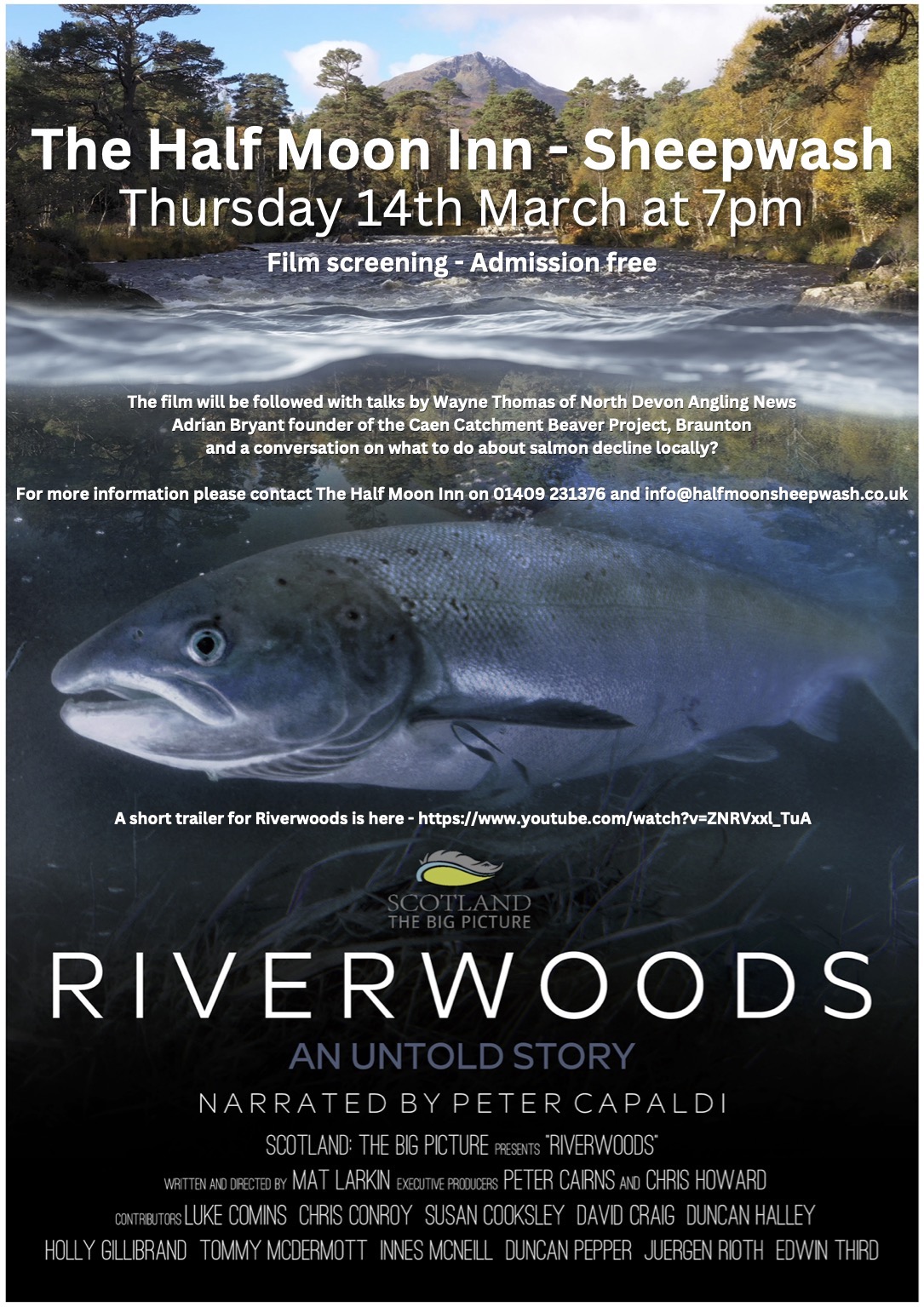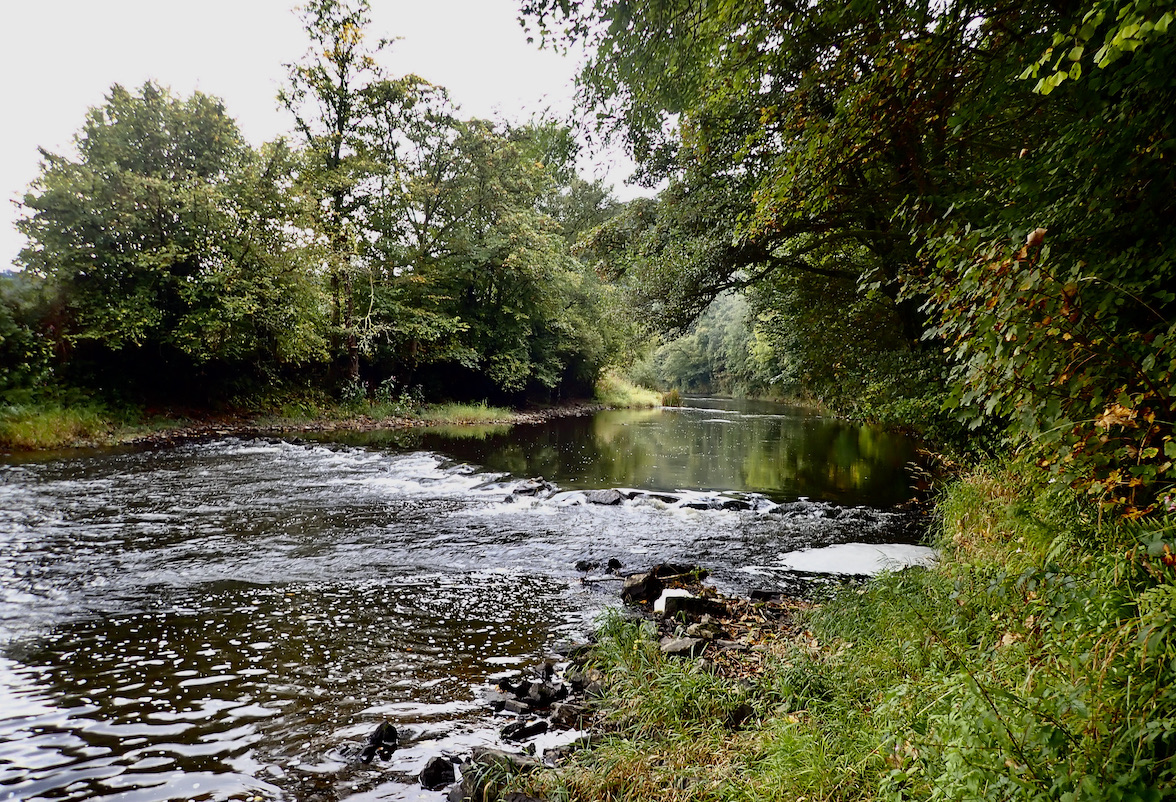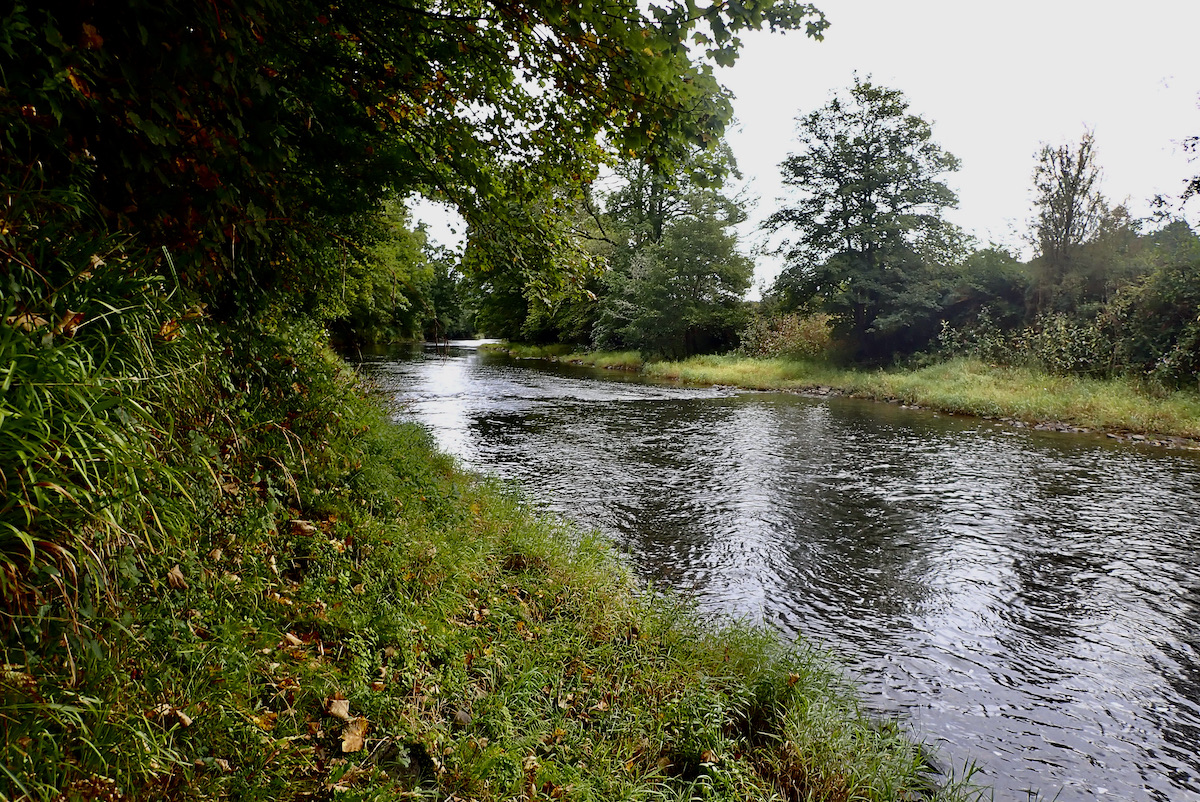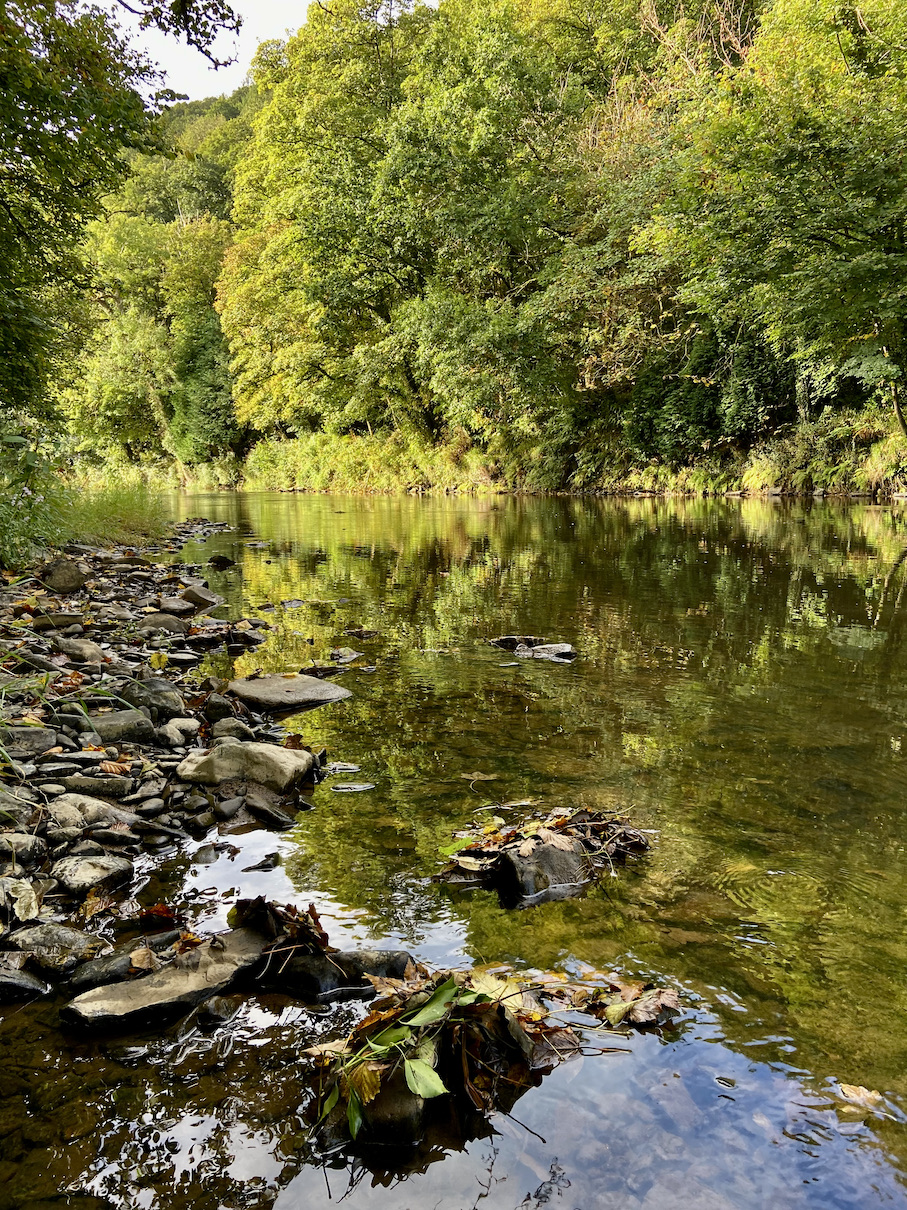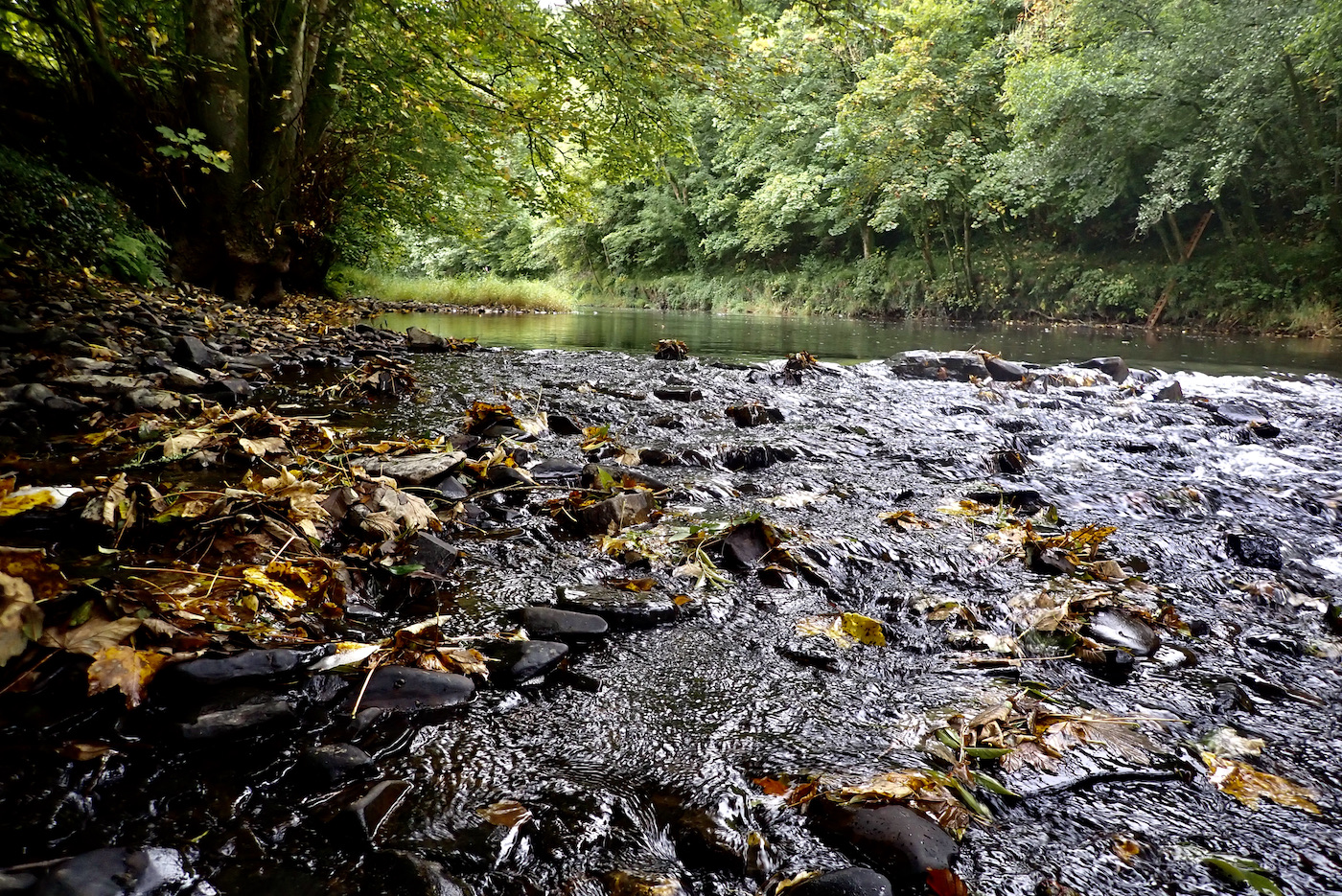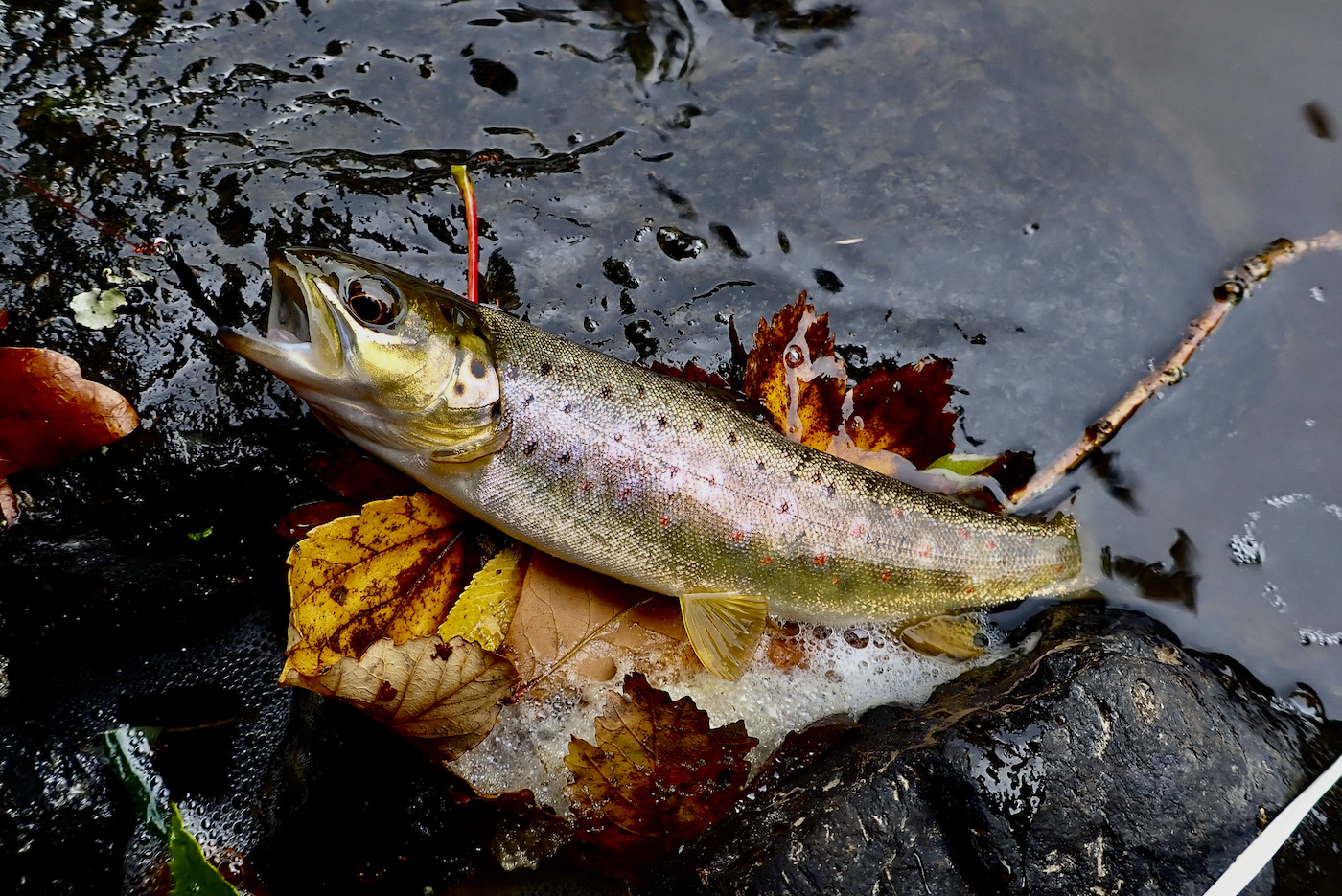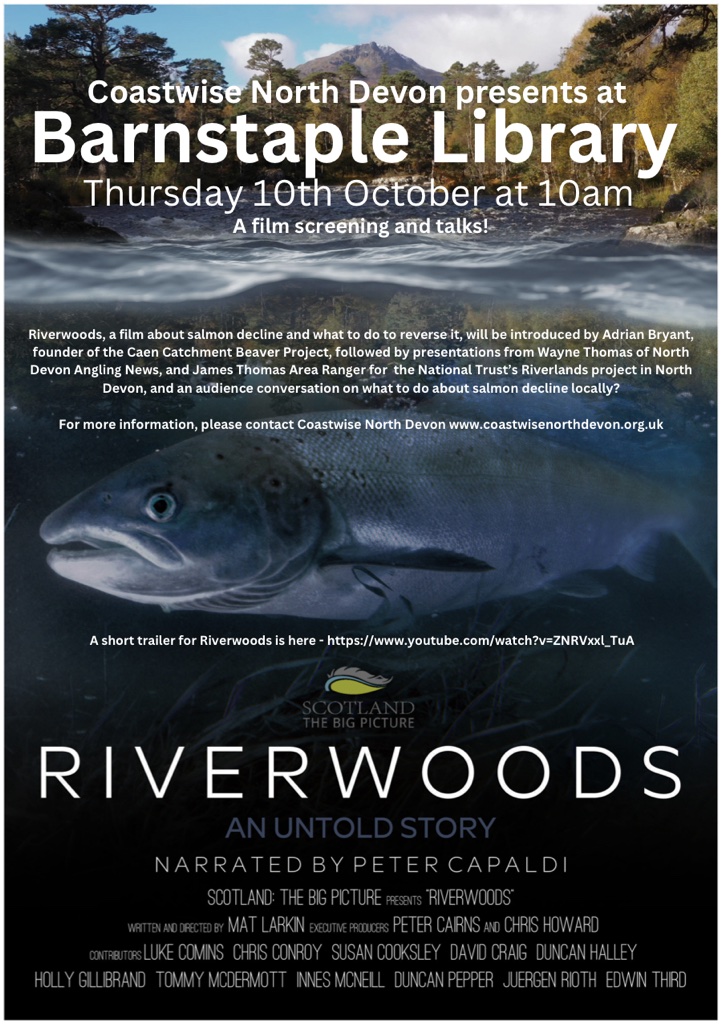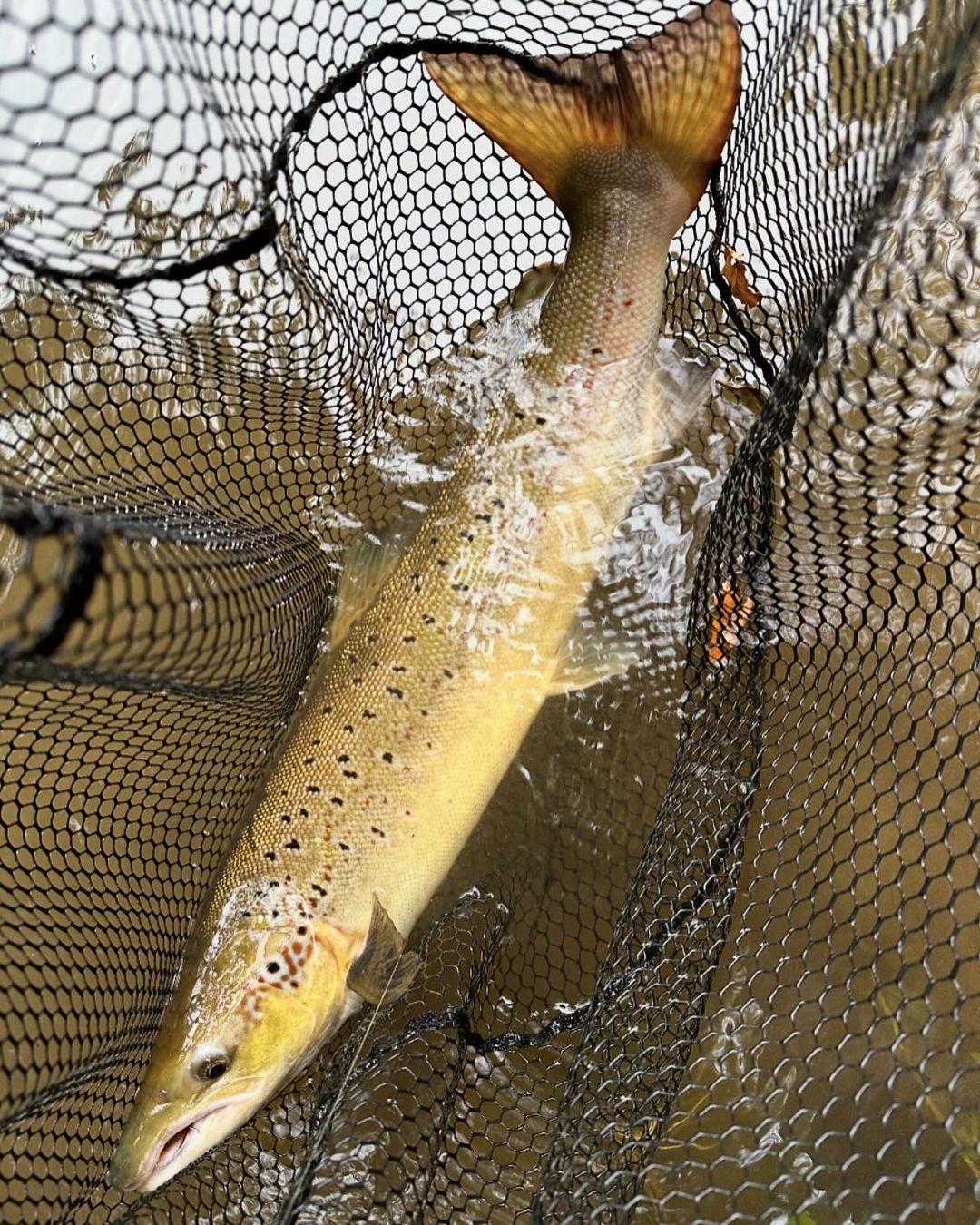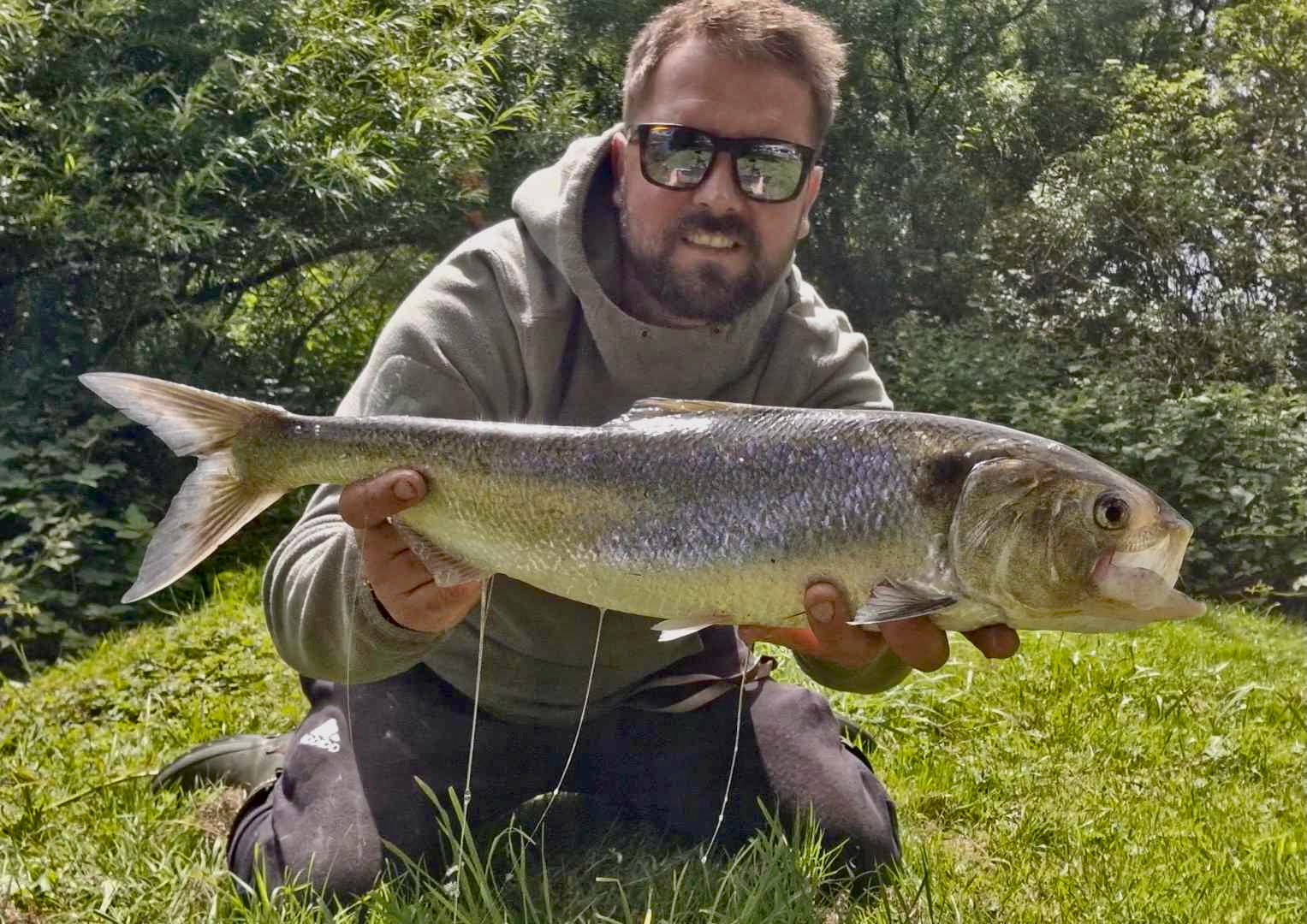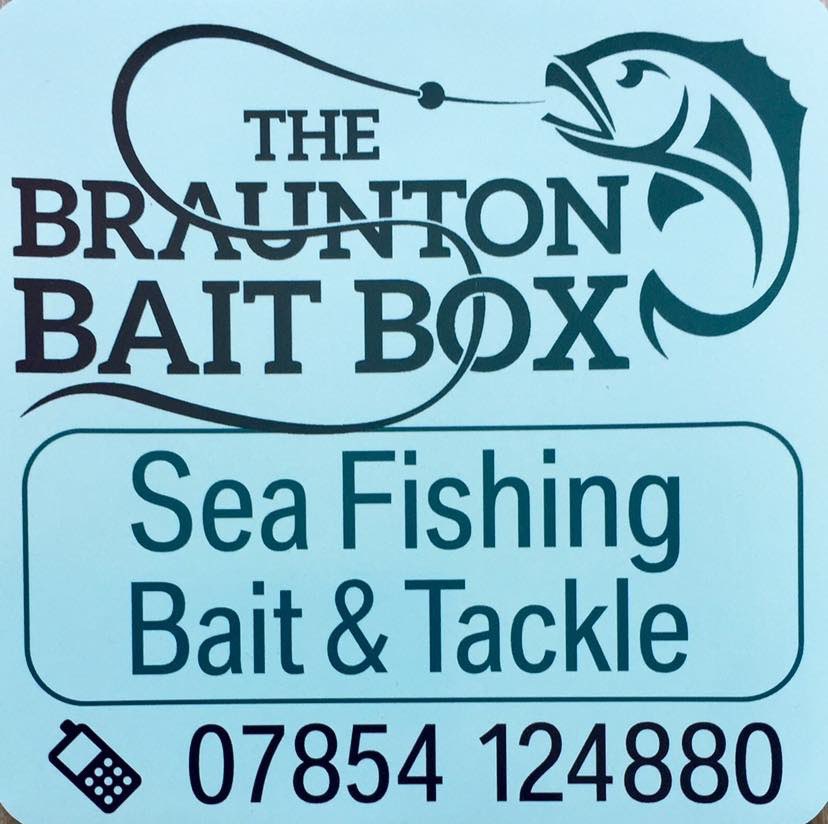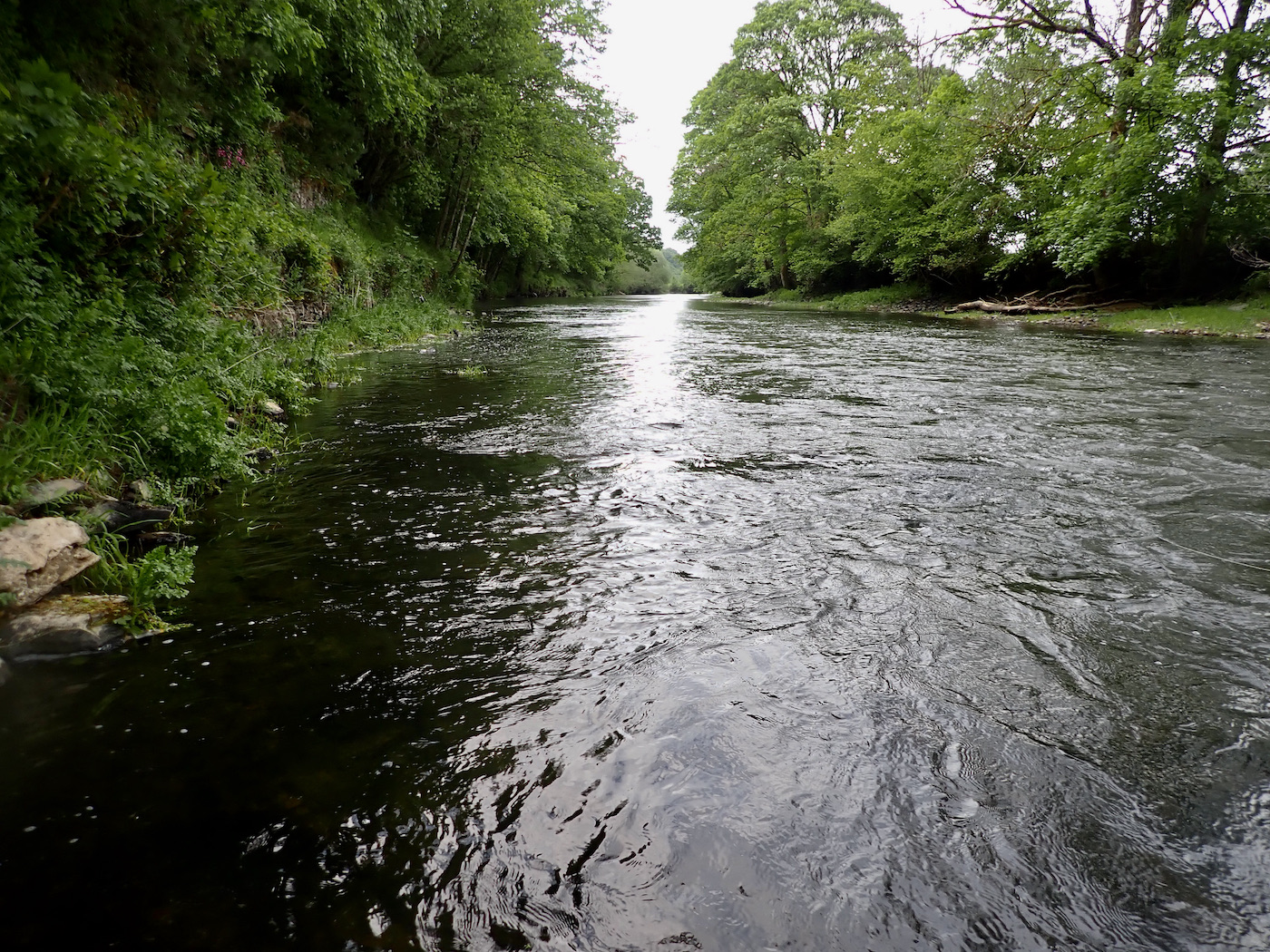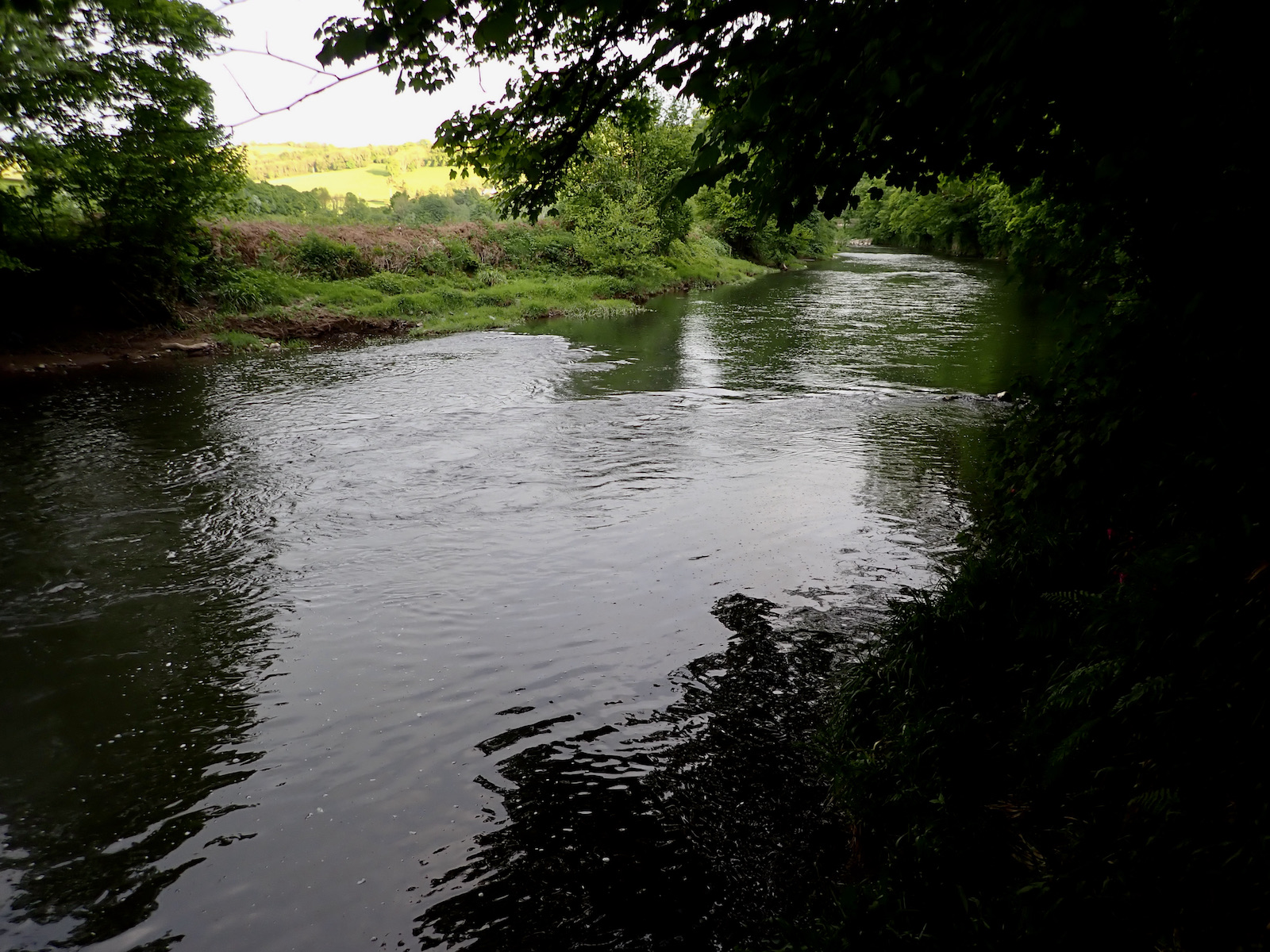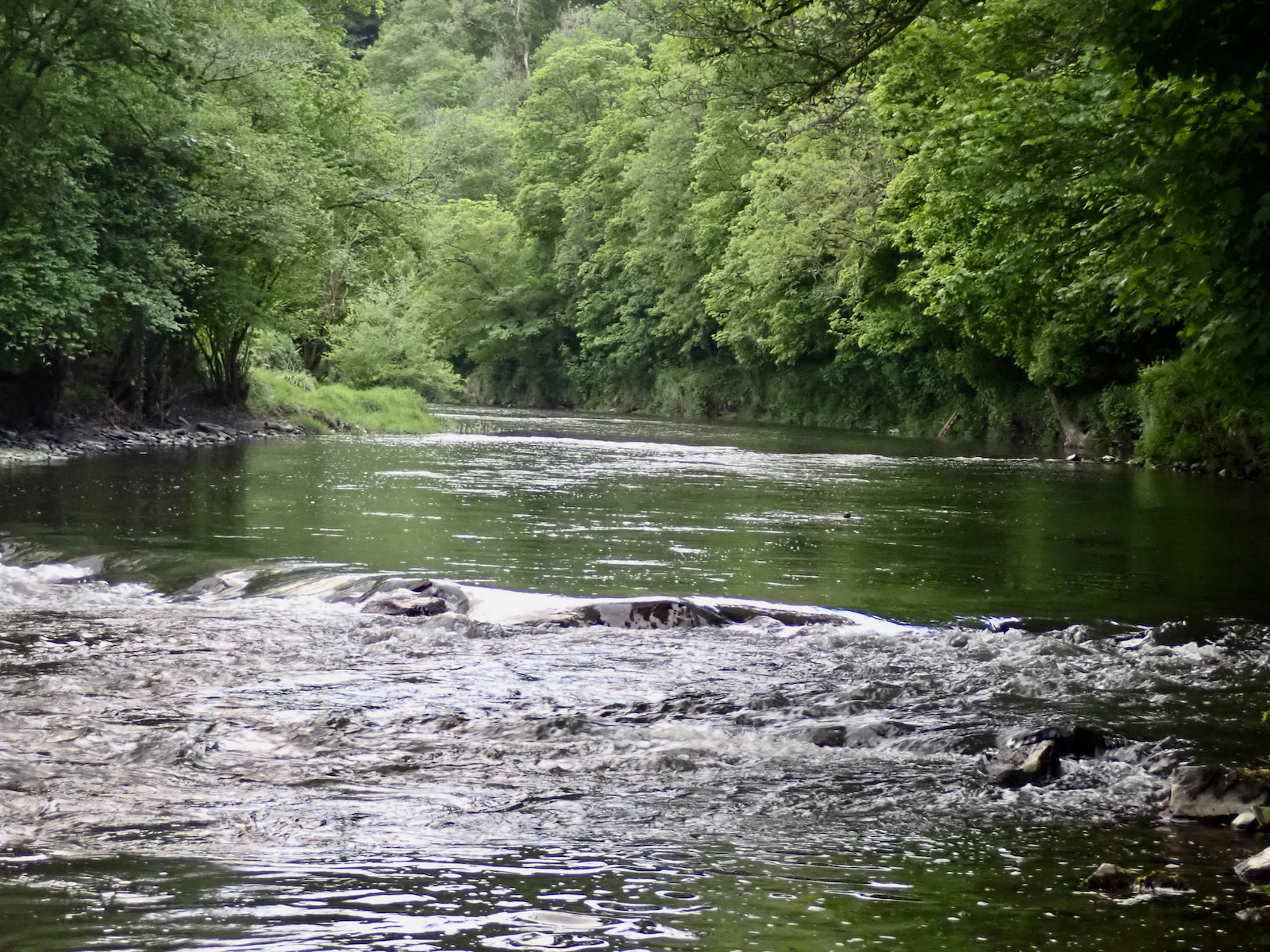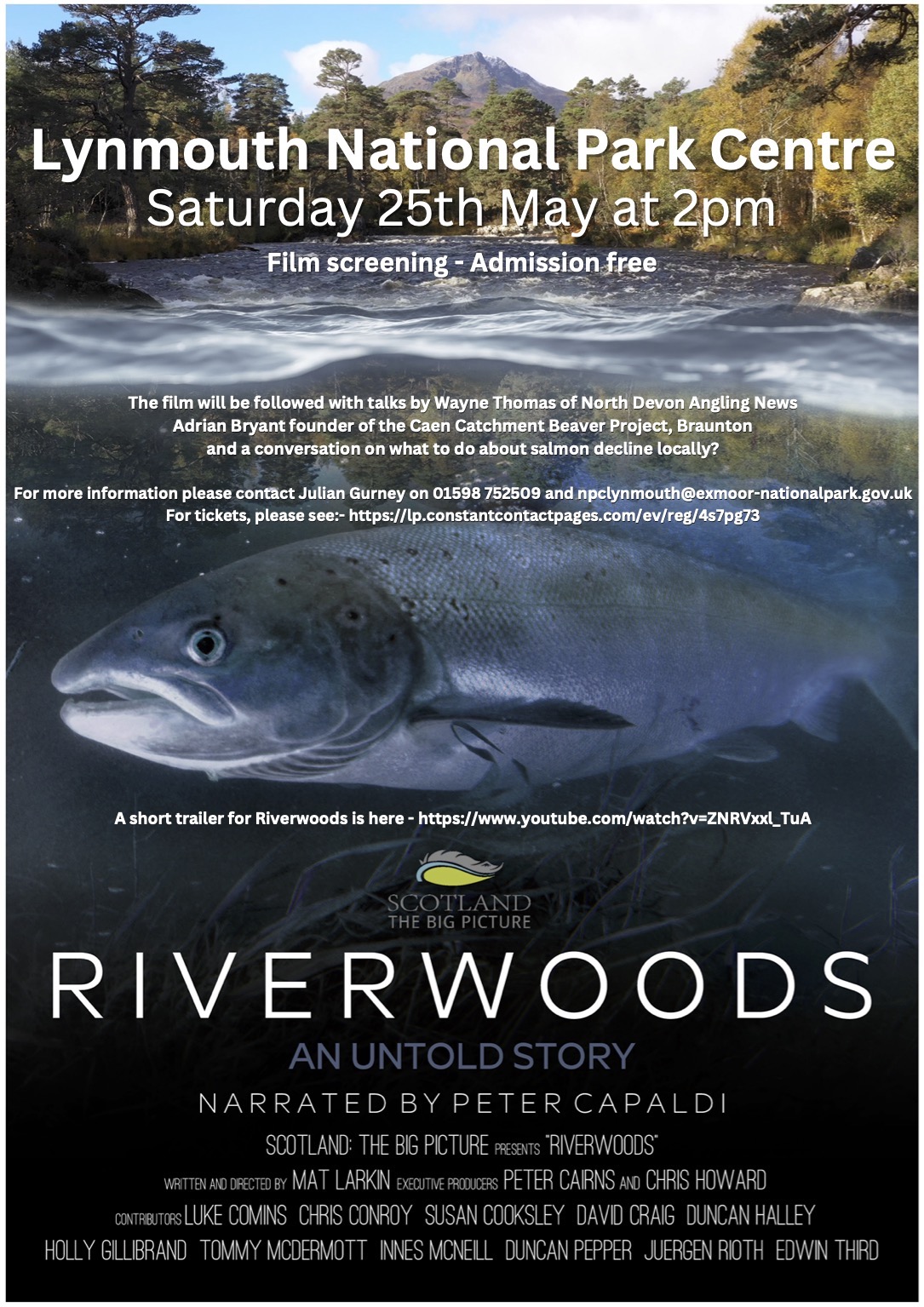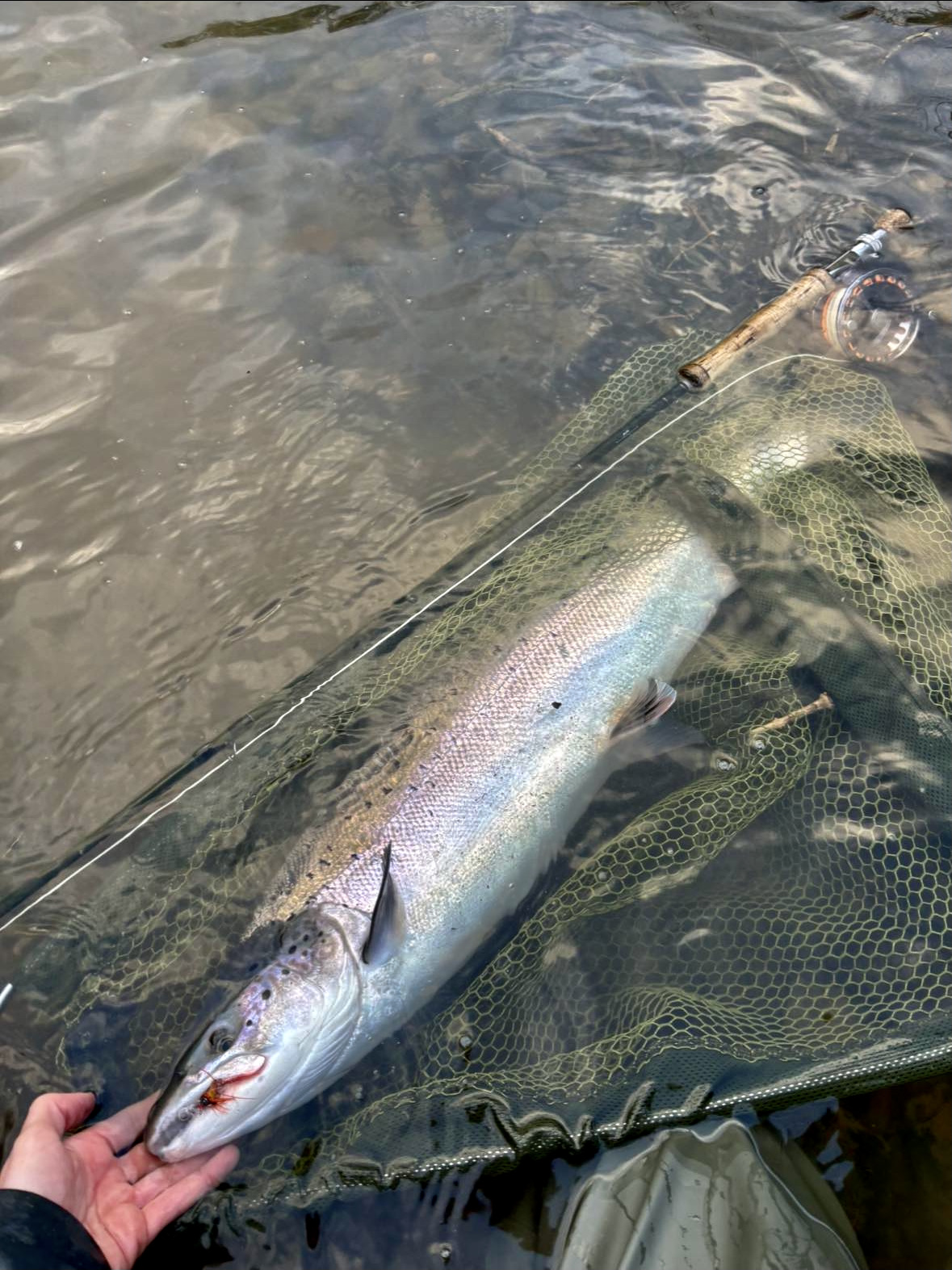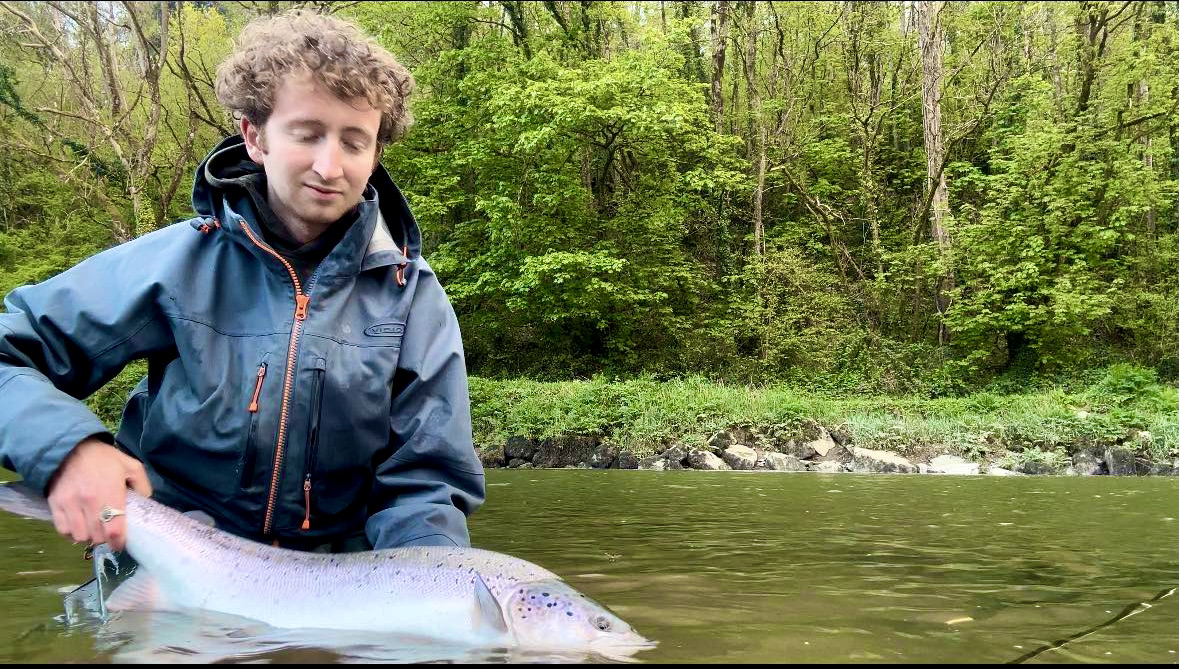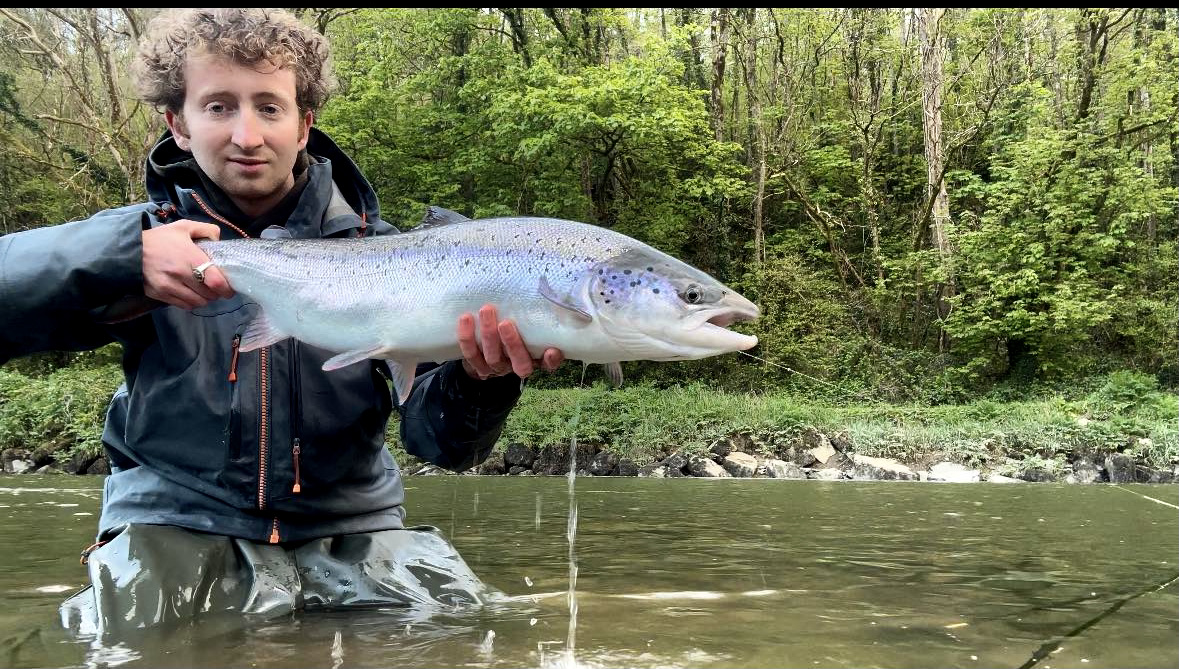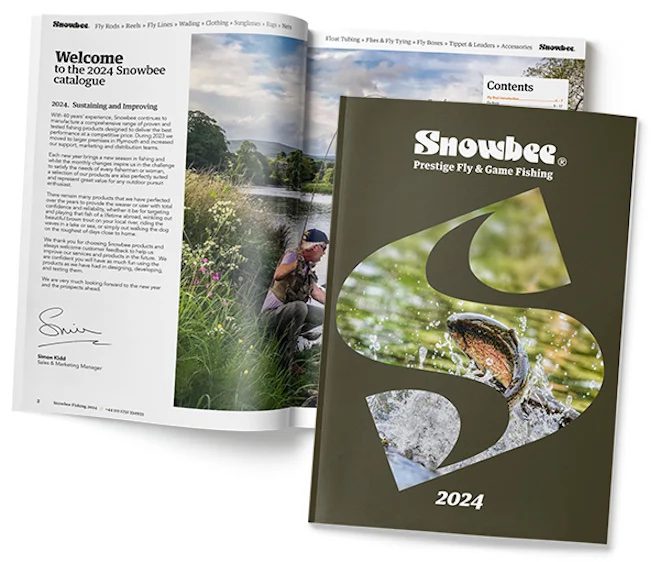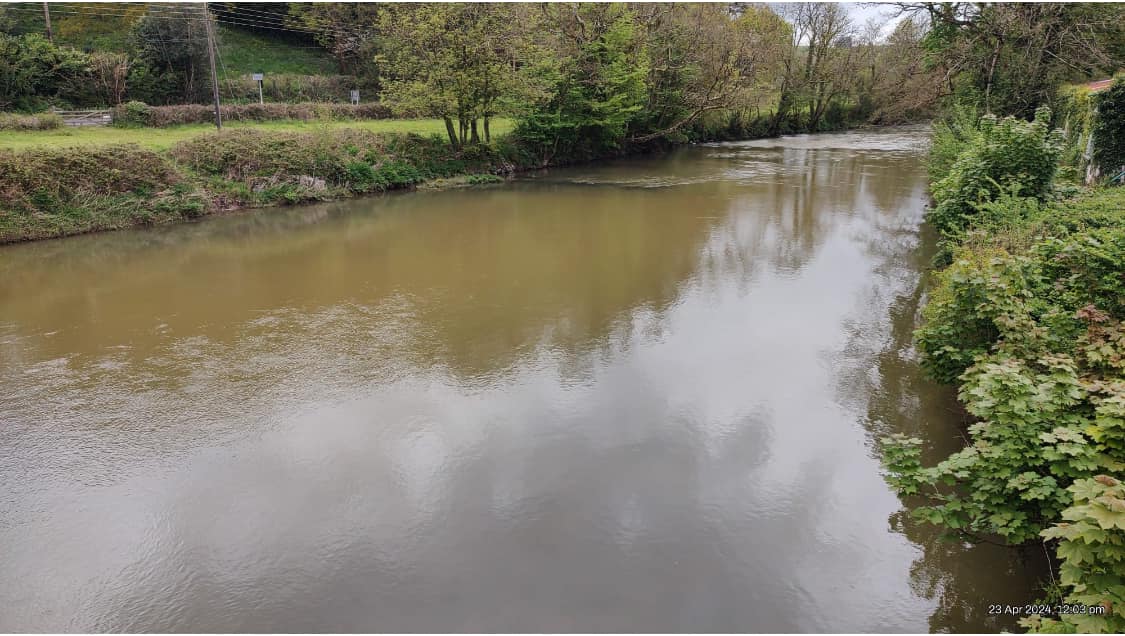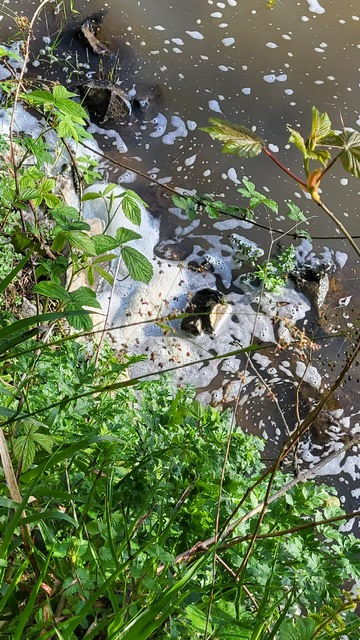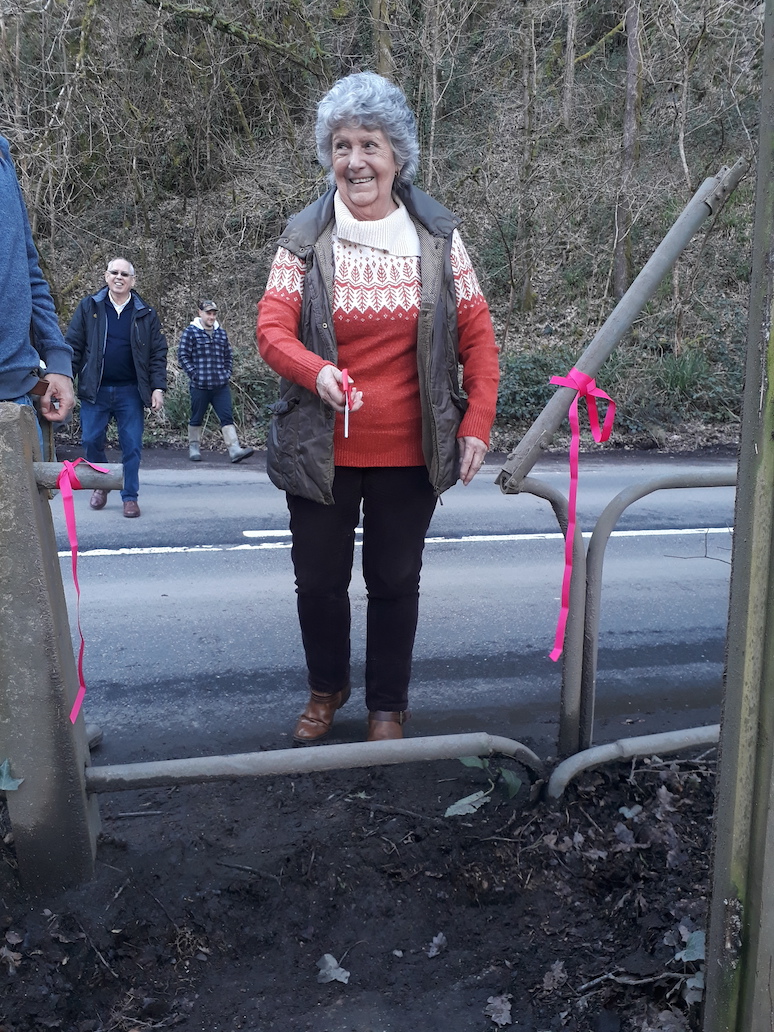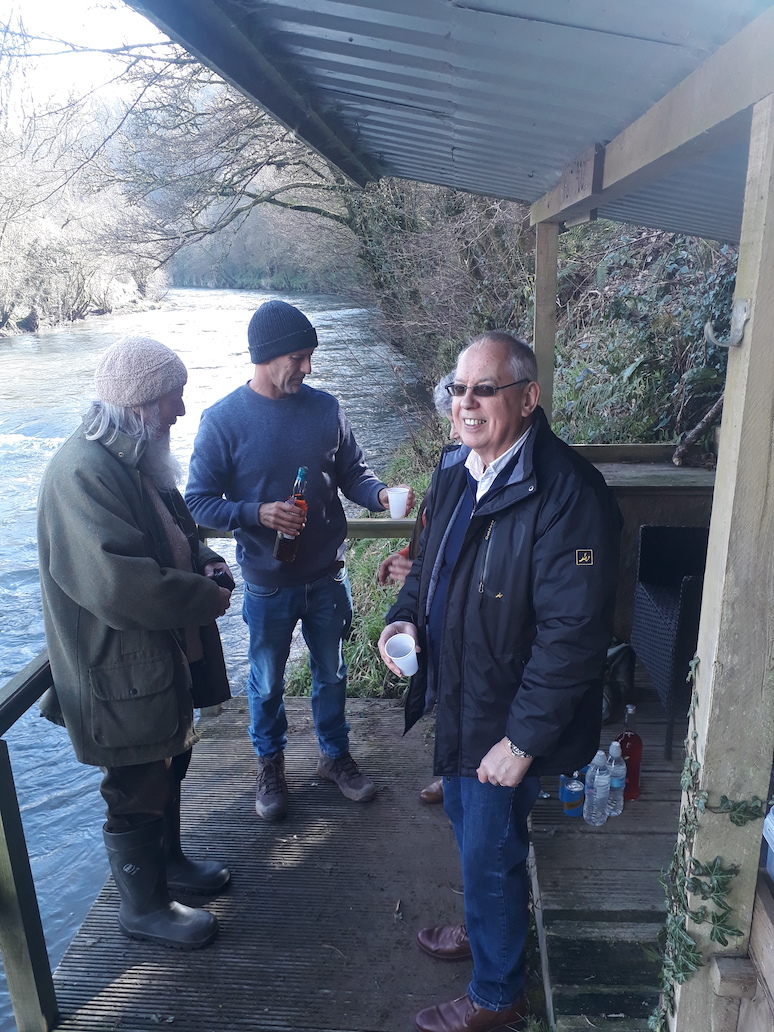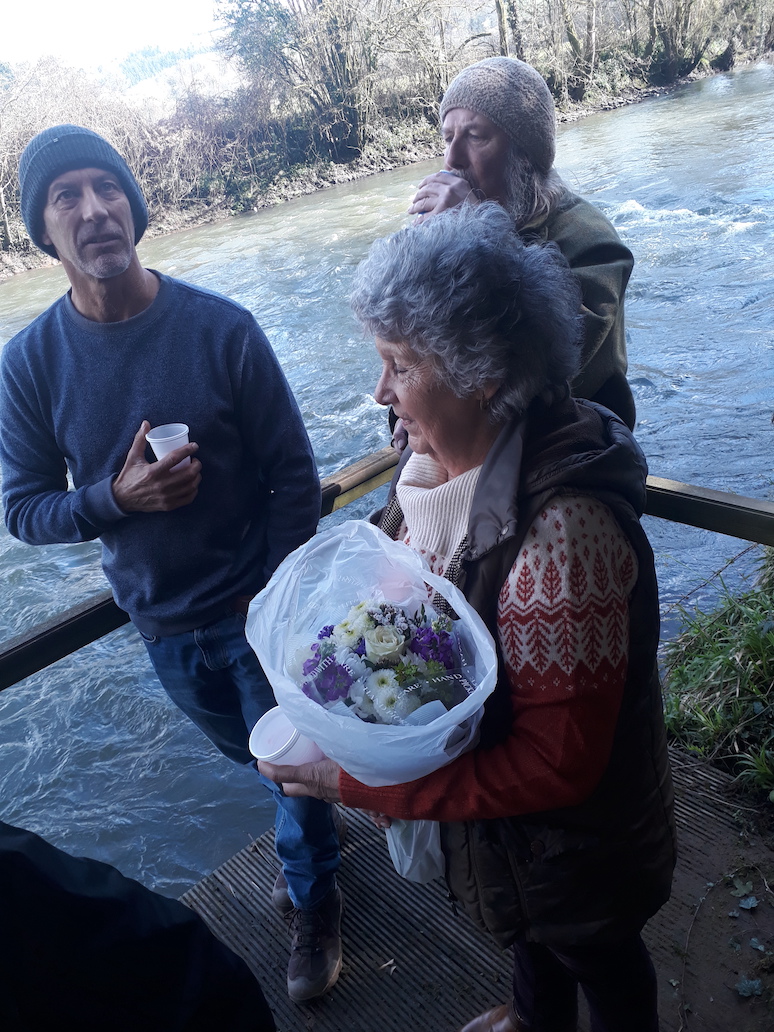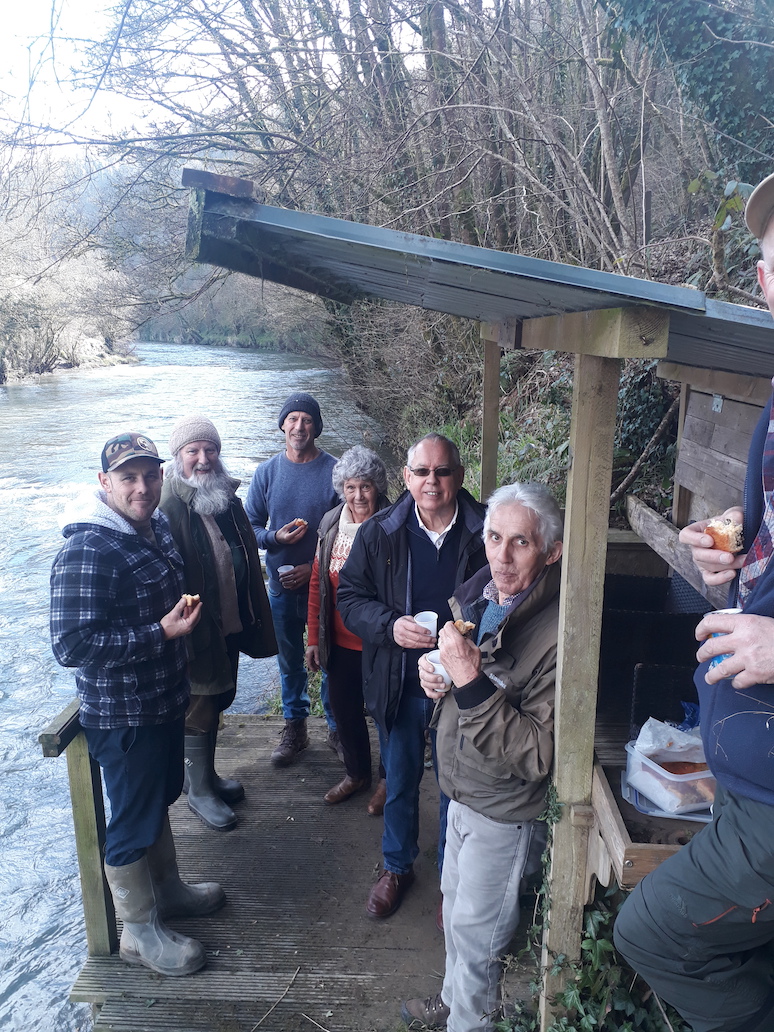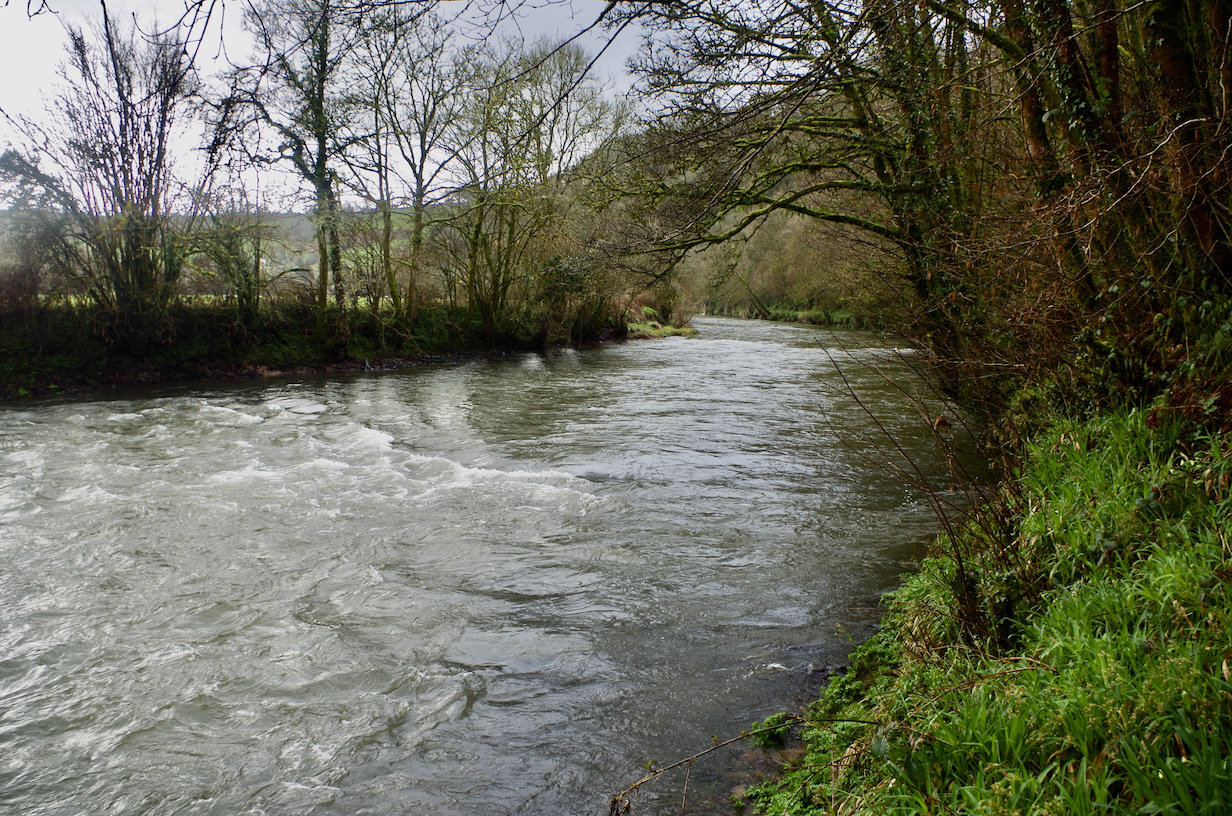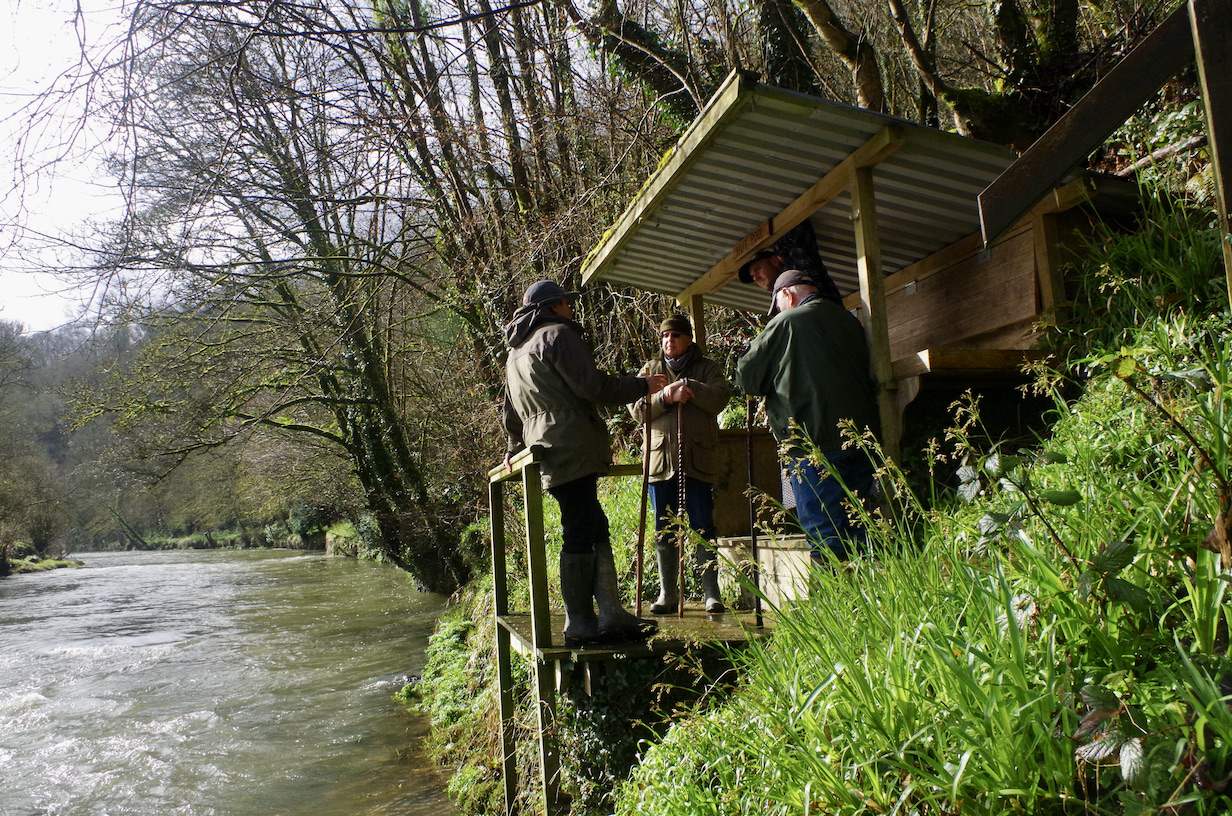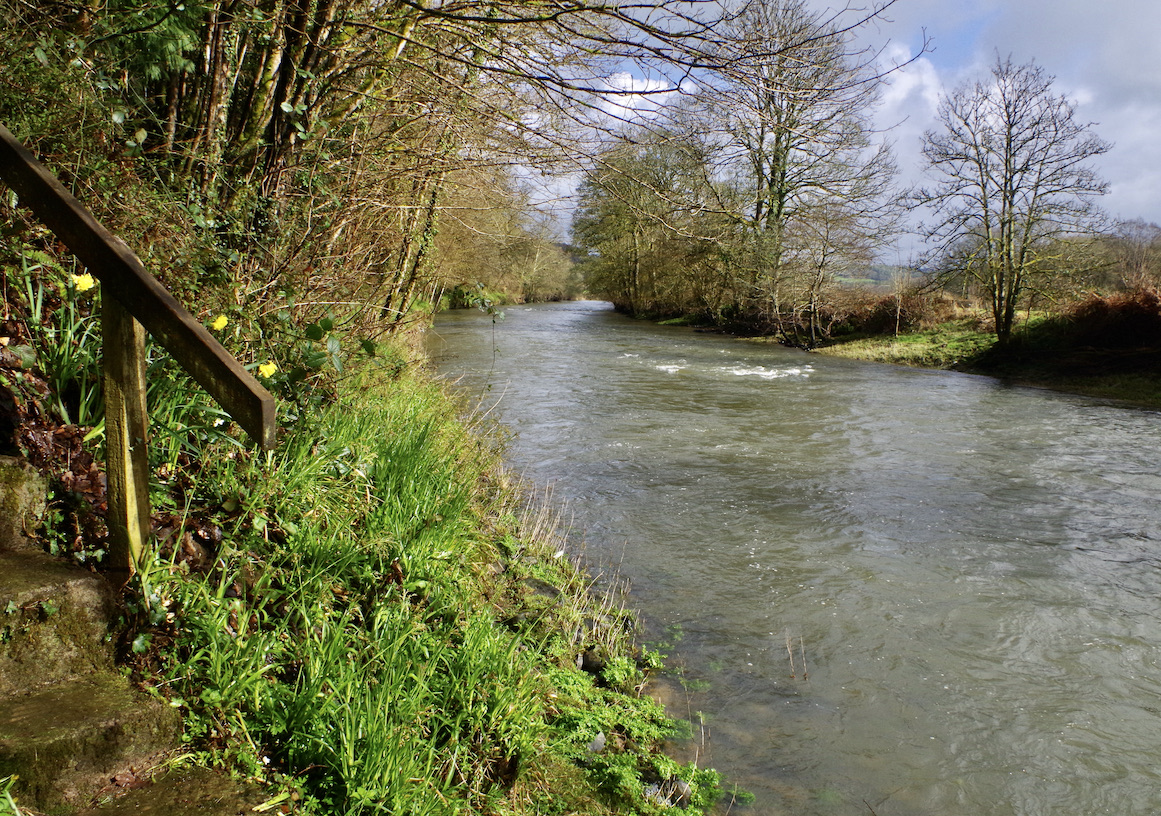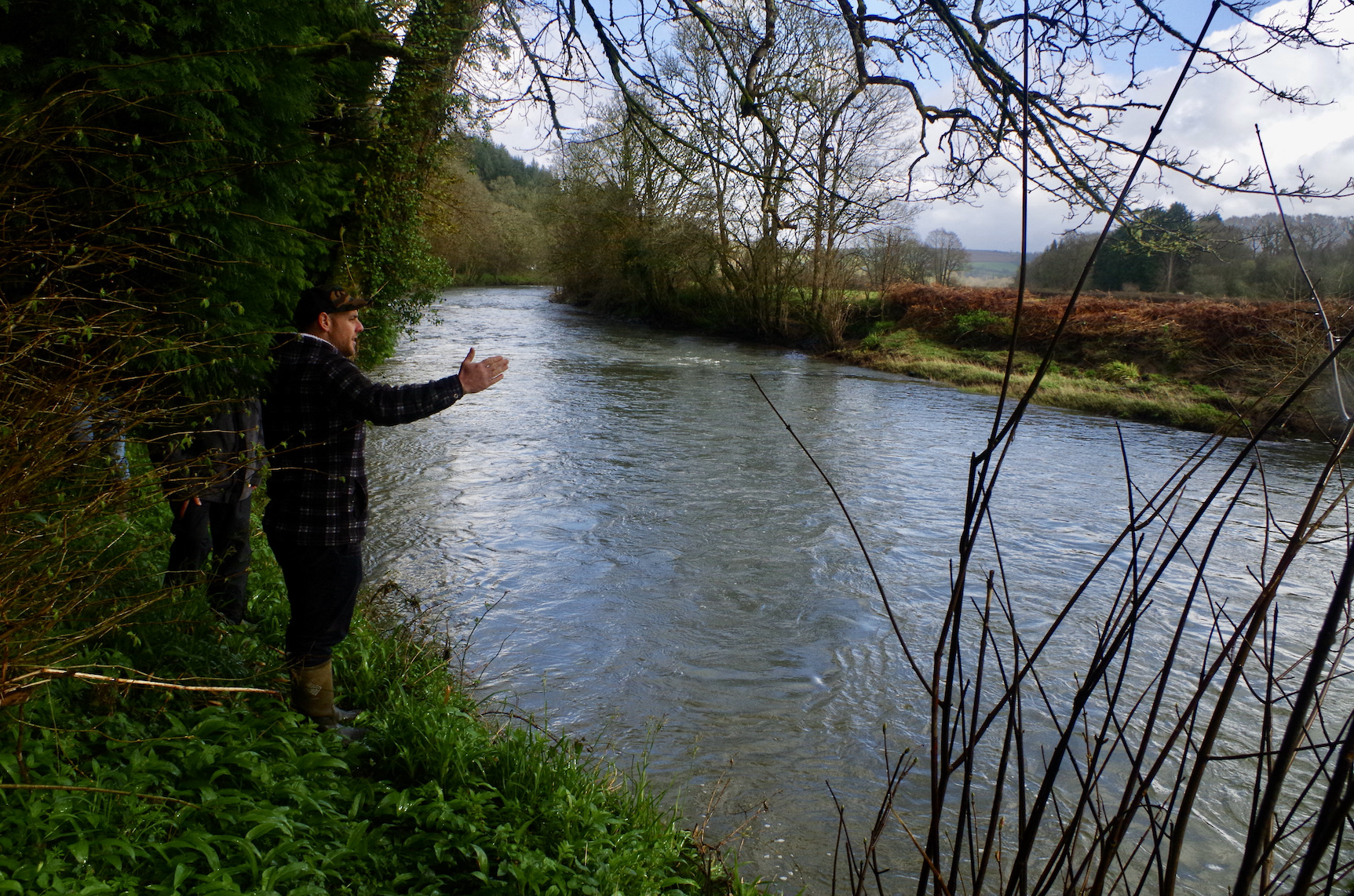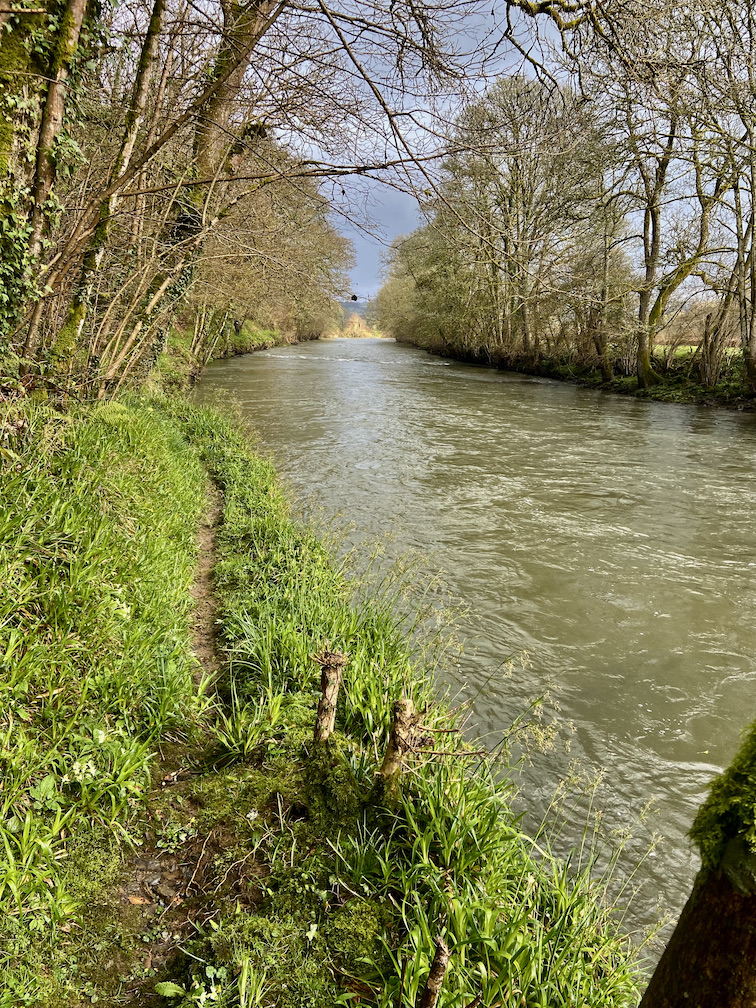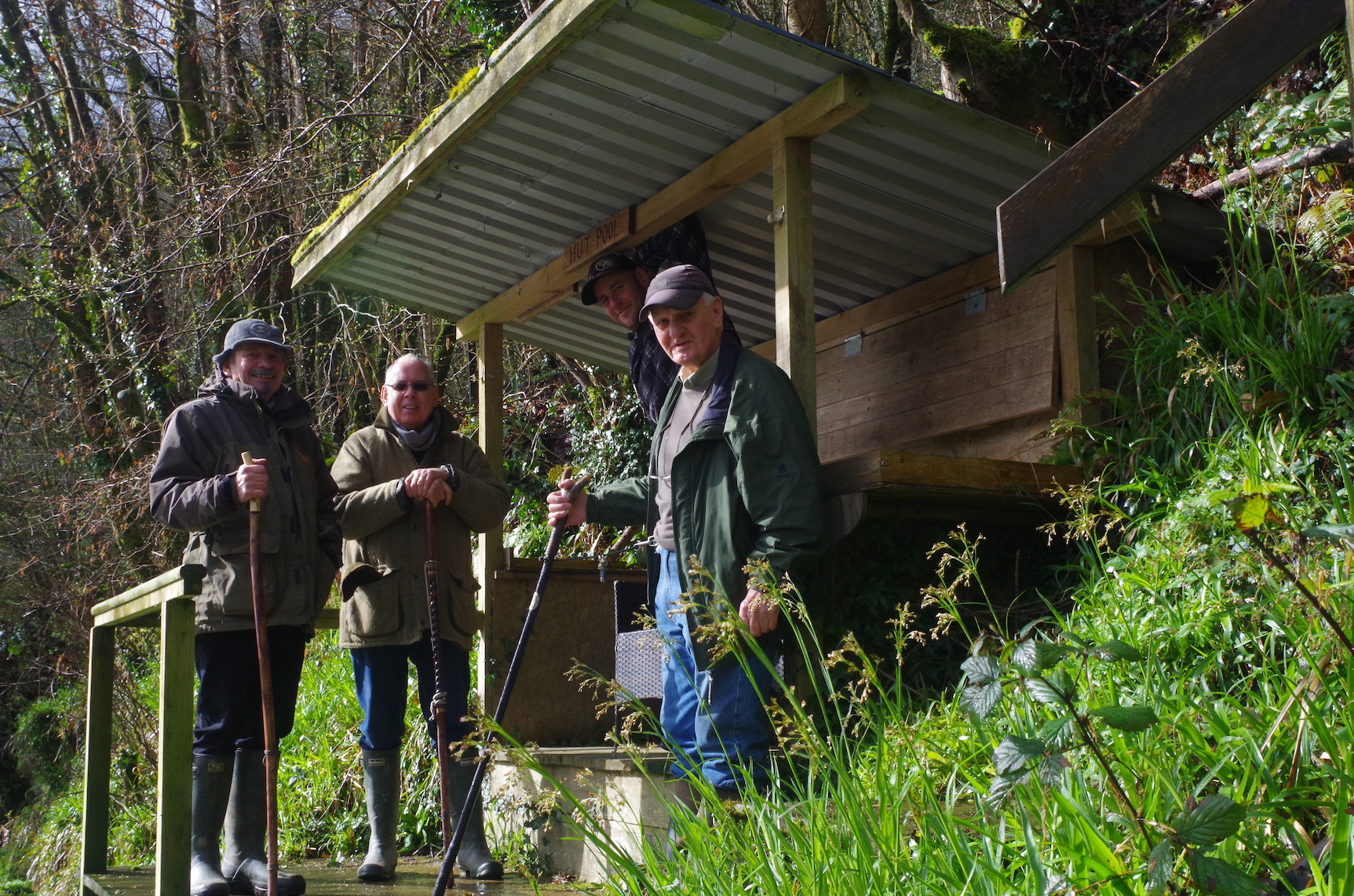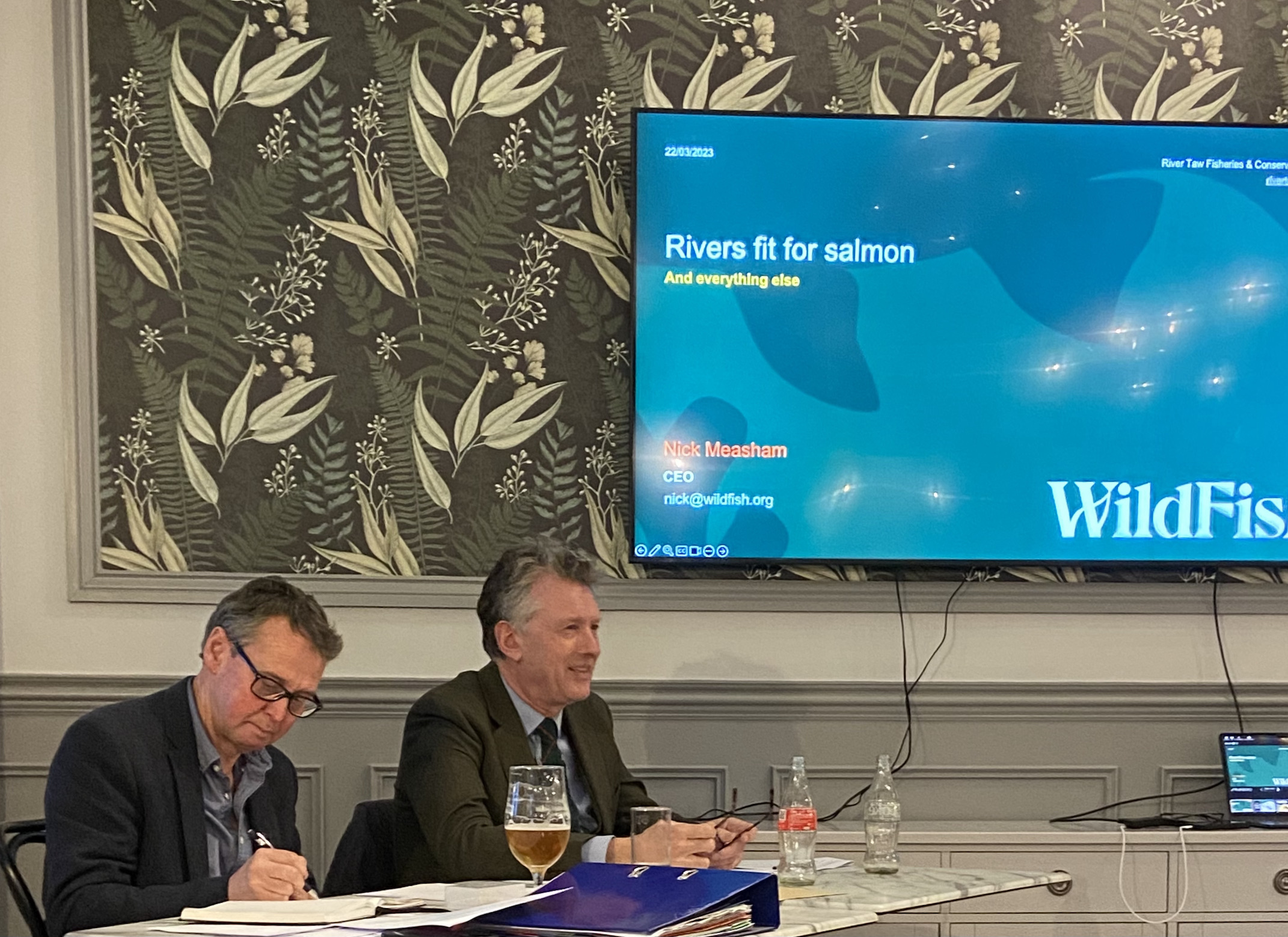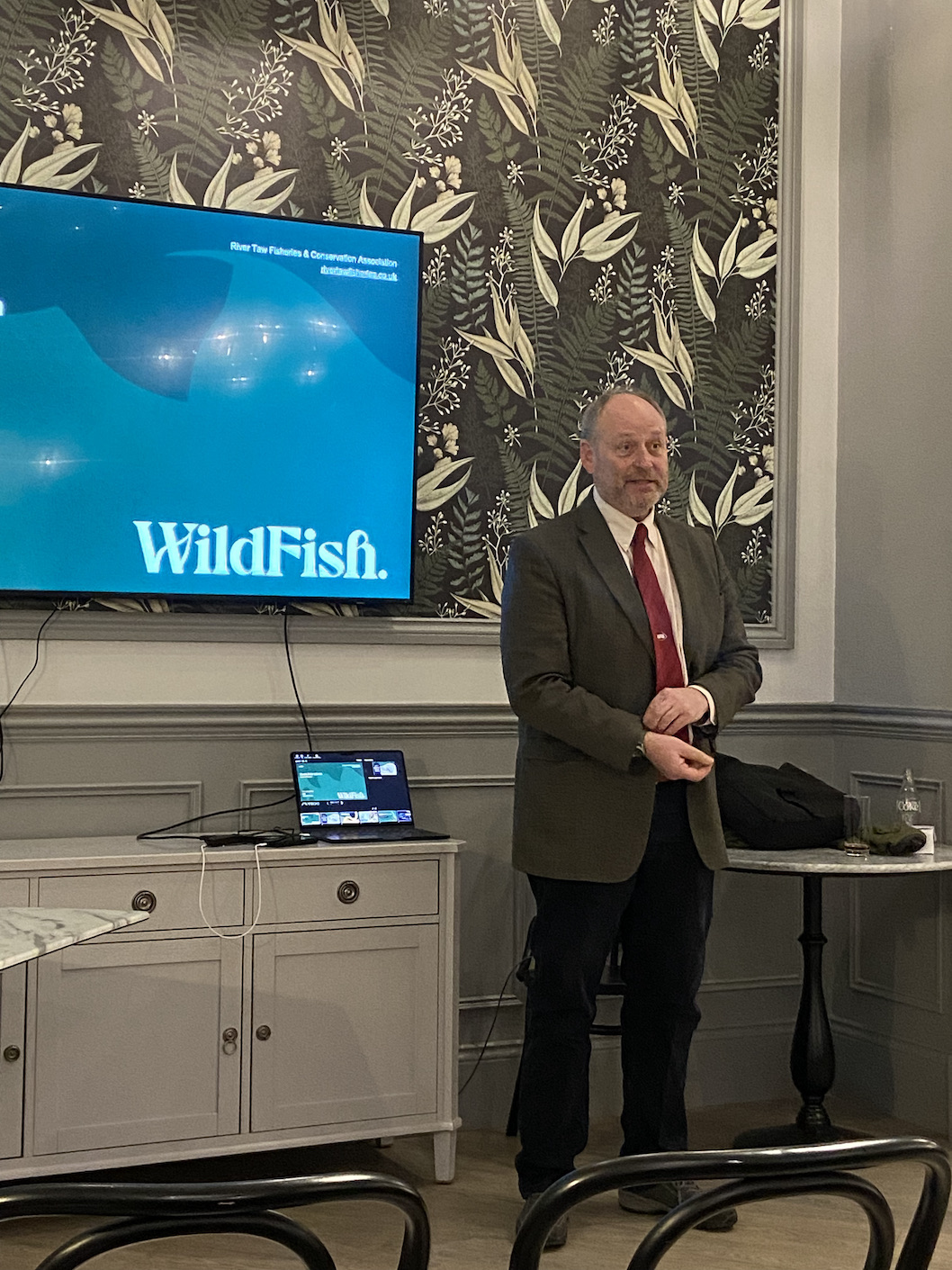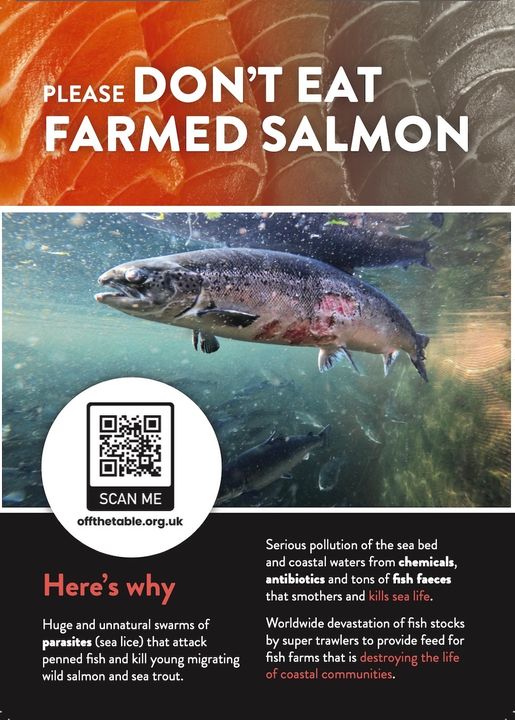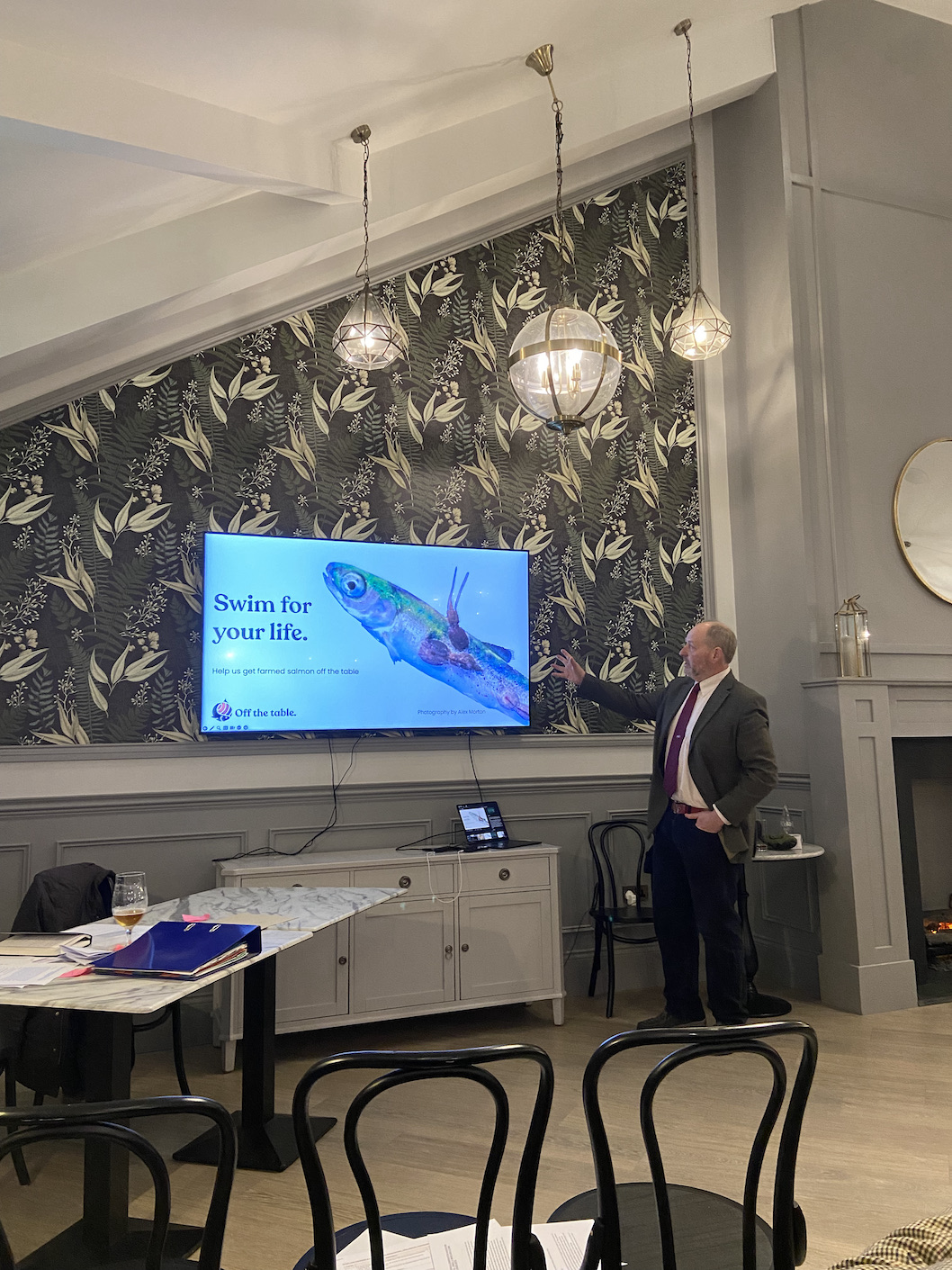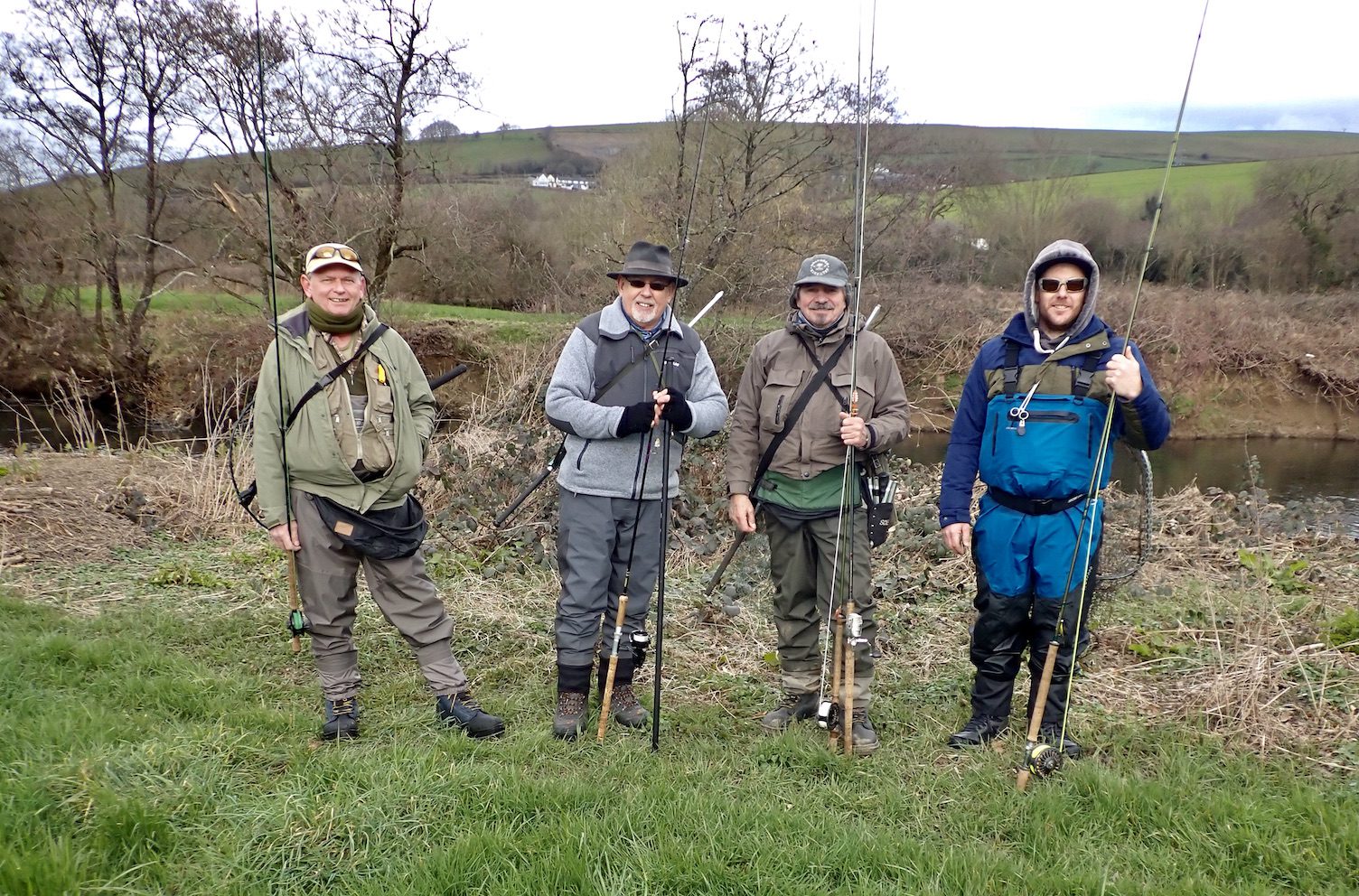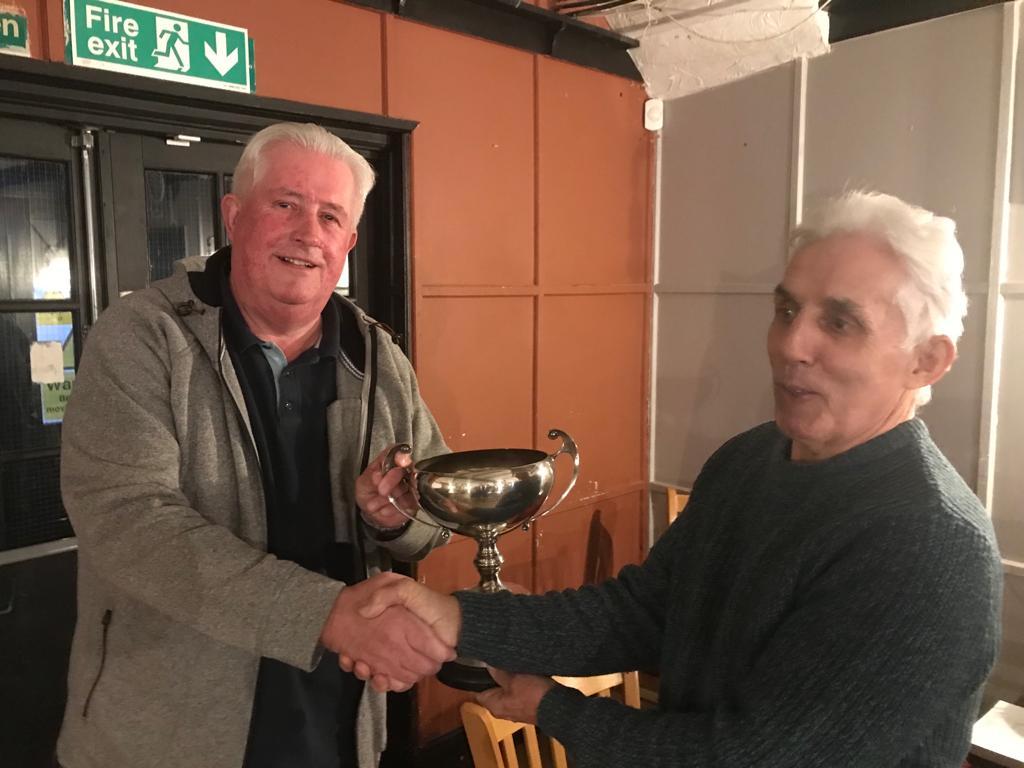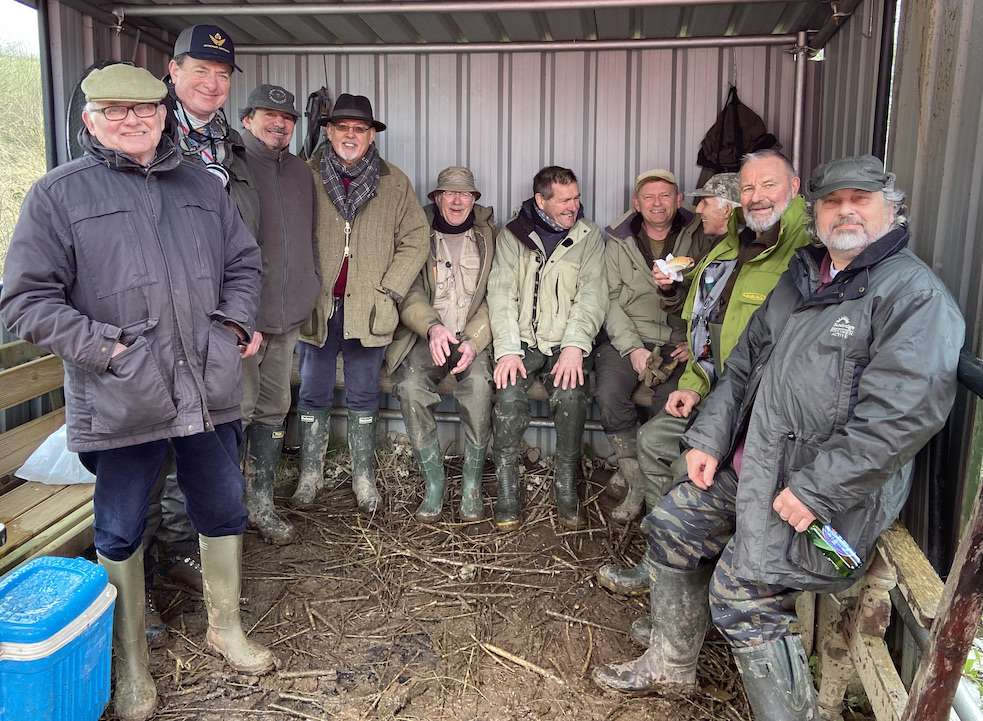
On March 1st 2024 members of the Barnstaple & District Angling Association assembled beside the River Taw celebrating both the start of a new season and the re-opening of the clubs fishing hut.
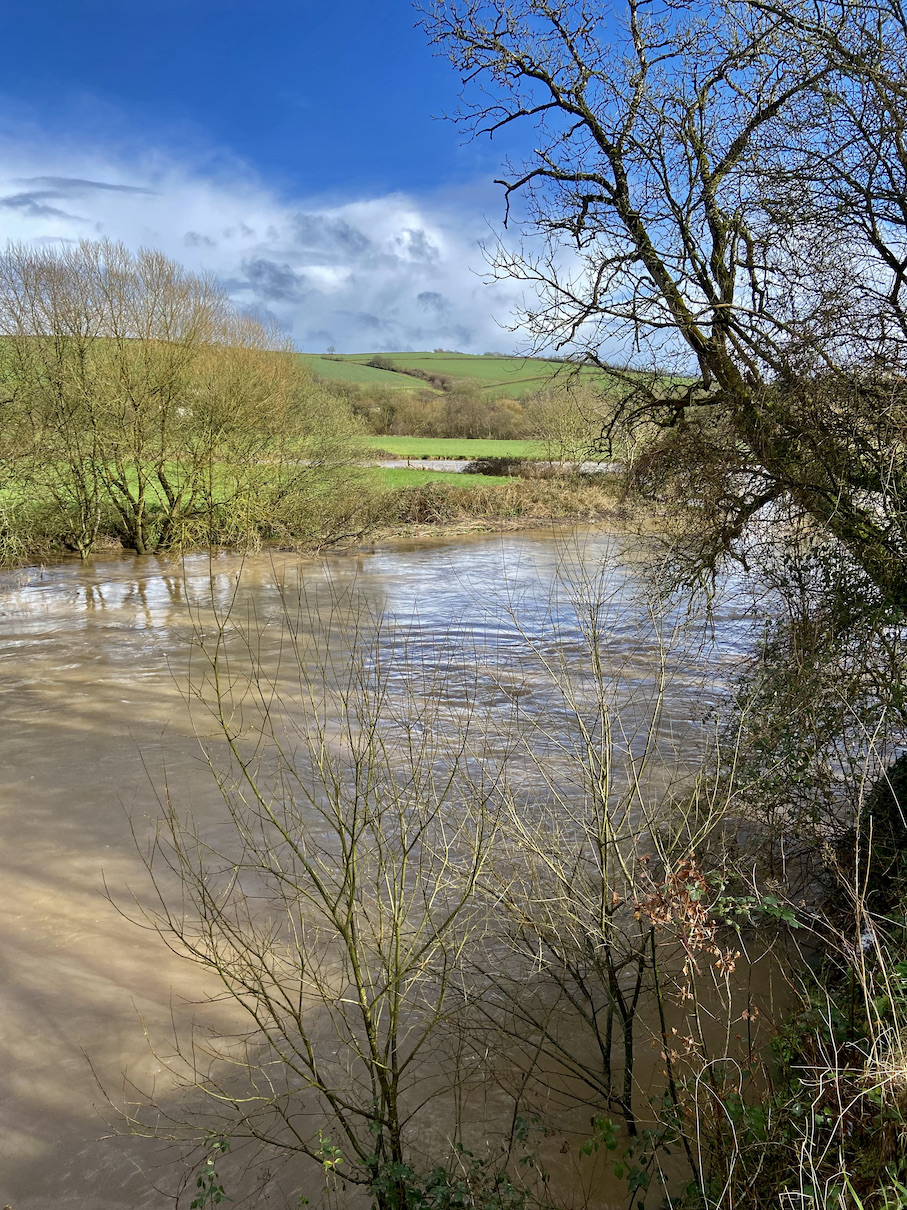
Some members had even brought their tackle with them despite the raging brown torrent that was racing towards Barnstaple the estuary and its eventual meeting with its sister river the Torridge at Instow.

As I walked to the river I savoured the birdsong as blackbird’s delightful tune filled the early Spring air. Primroses, wood sorrel, celandines and other fresh green shoots of spring were evident in the roadside hedge.
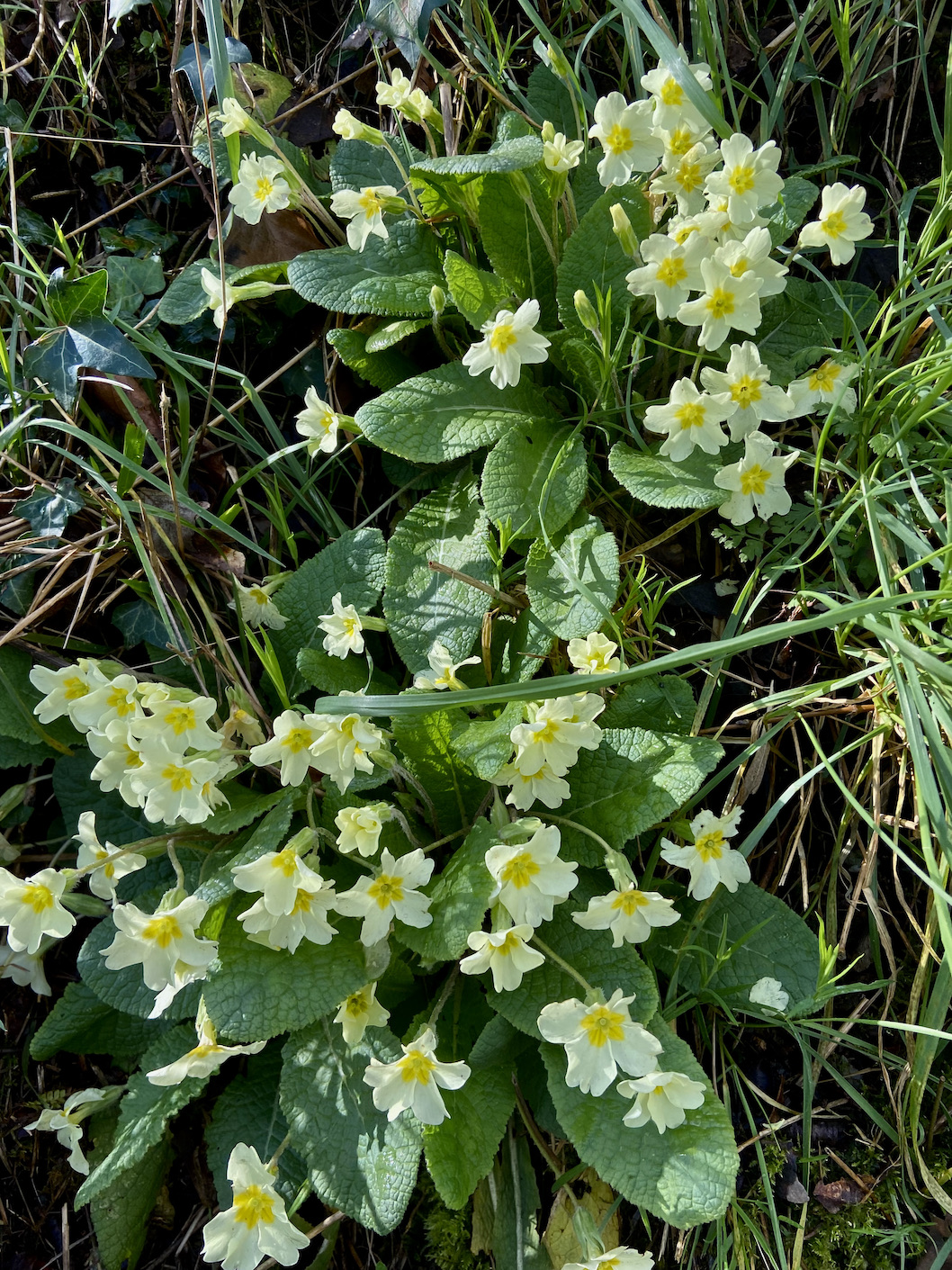
I have a wealth of memories regarding the old fishing hut and you can read my account of a visit to the old hut fifteen years or so ago at the end of this article the account can also be found in my book I Caught A Glimpse that can still be bought at the Little Egret Press.
There is something reassuring about the return to the river at the start of each season. There is that eternal optimism of the returning angler. For despite the constant decline in salmon numbers and concerns about water quality there is a resilience in nature.
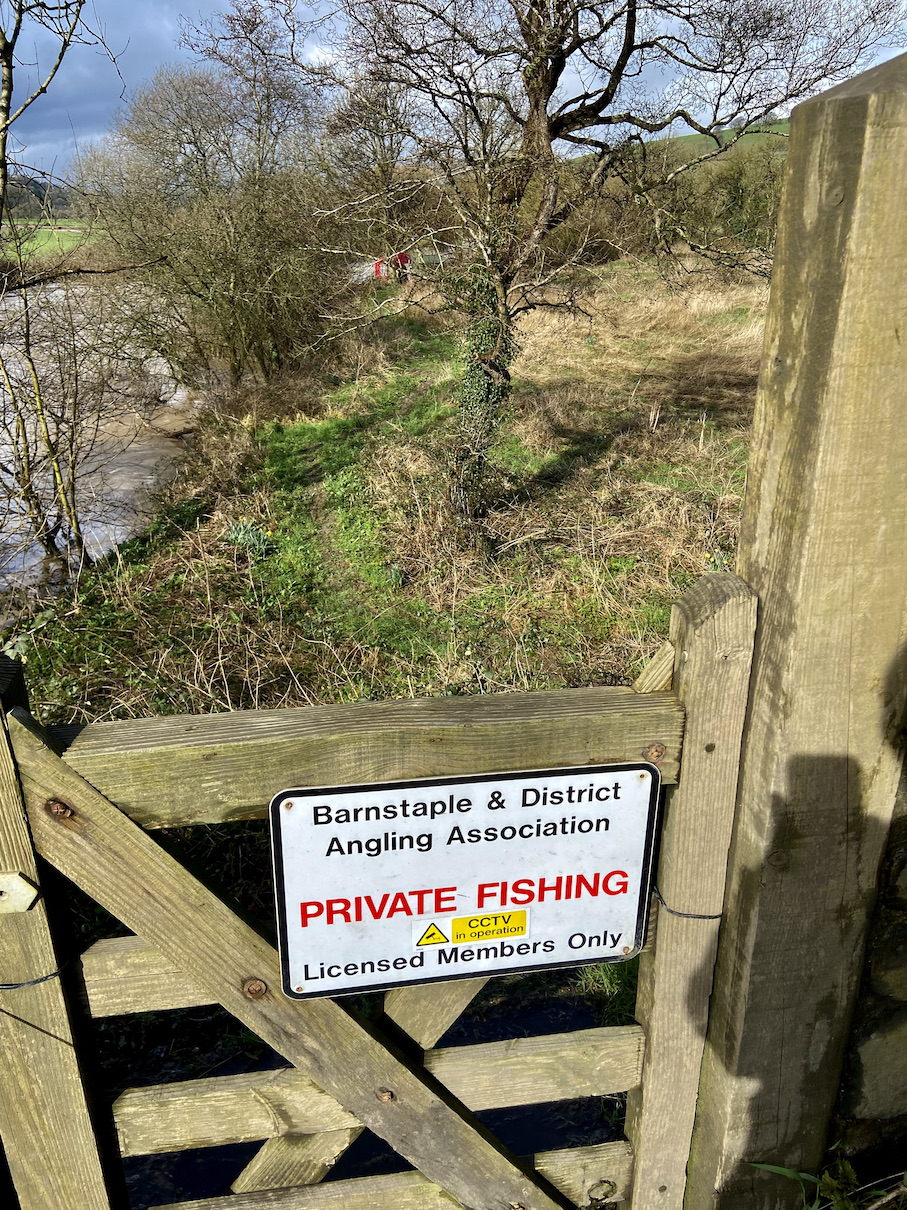
I negotiated the road bridge and headed down the familiar fisherman’s path to the old hut. A bright red gazebo seemed slightly surreal erected at the front of the newly refurbished shelter.
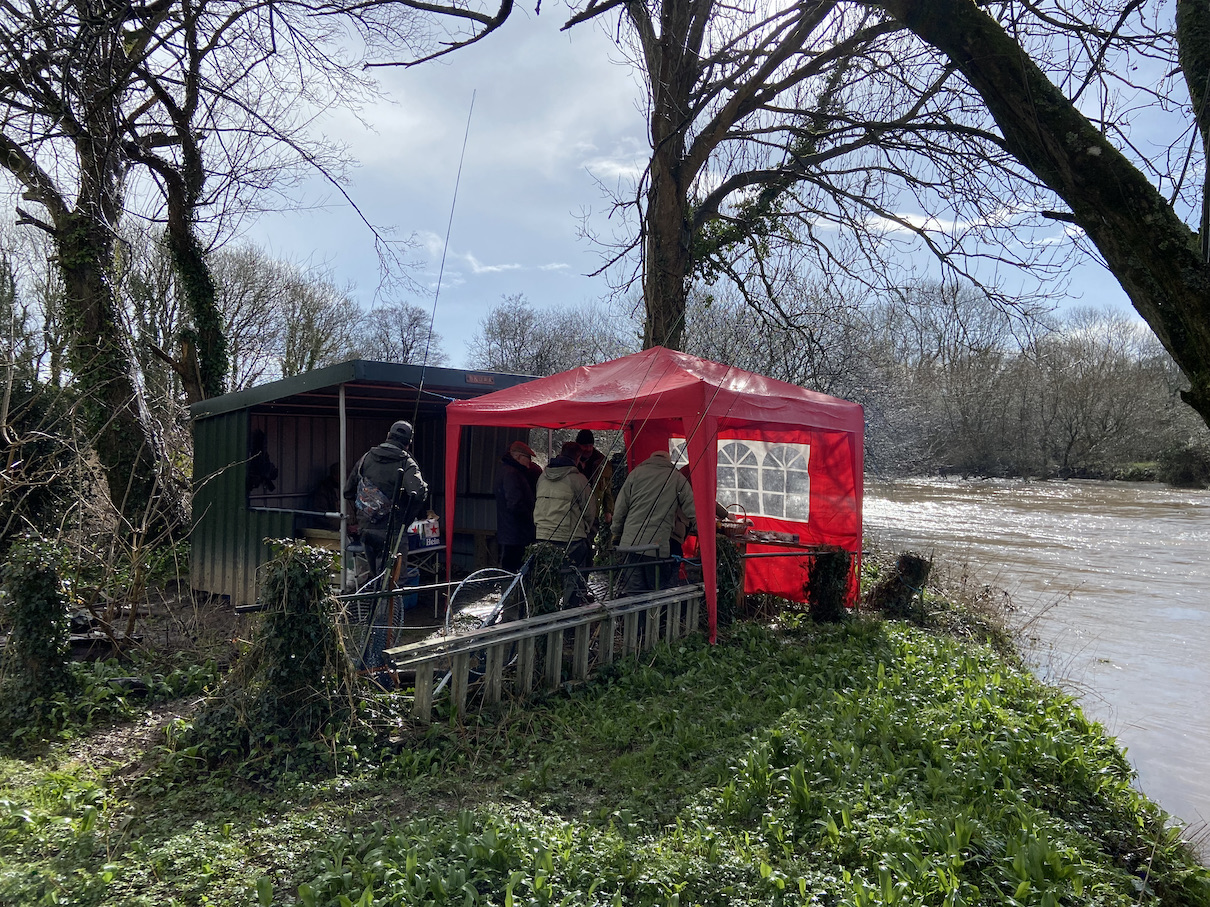
It was good to hear cheery voices as I approached and I smelt the smoke lifting from the BBQ. There was a cheery greeting from fellow members and a welcome hotdog as talk of the new season and past adventures did the rounds.
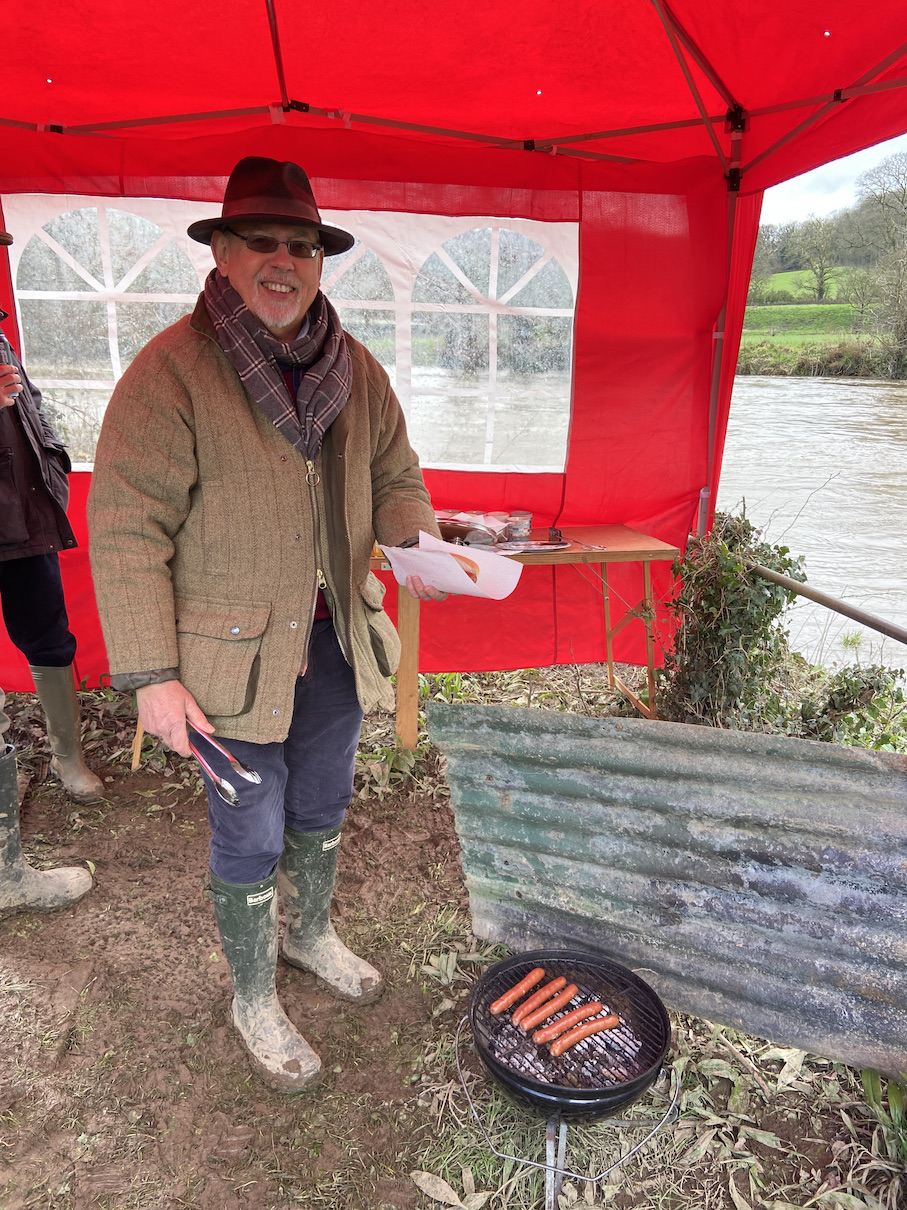
Water quality was high on the topic list as we chatted about the council meeting held at Petroc college a few days before. All agreed that it was good to place the state of our rivers higher on the political agenda. The integrity of our local MP and local water companies was discussed but I will steer clear of politics on this platform!
The jovial camaraderie of the assembly had a touch of ‘Last of the Summer Wine’ or ‘Dads Army’. Don Hearn the club river keeper brings a refreshing air of optimism and whilst he acknowledged the dwindling salmon numbers compared to the past he also talked of the joy of club life on the river bank.
Club Chairman John Webber declared the hut open with the ceremonial cutting of a green ribbon that threatened to disintegrate in the wet conditions.
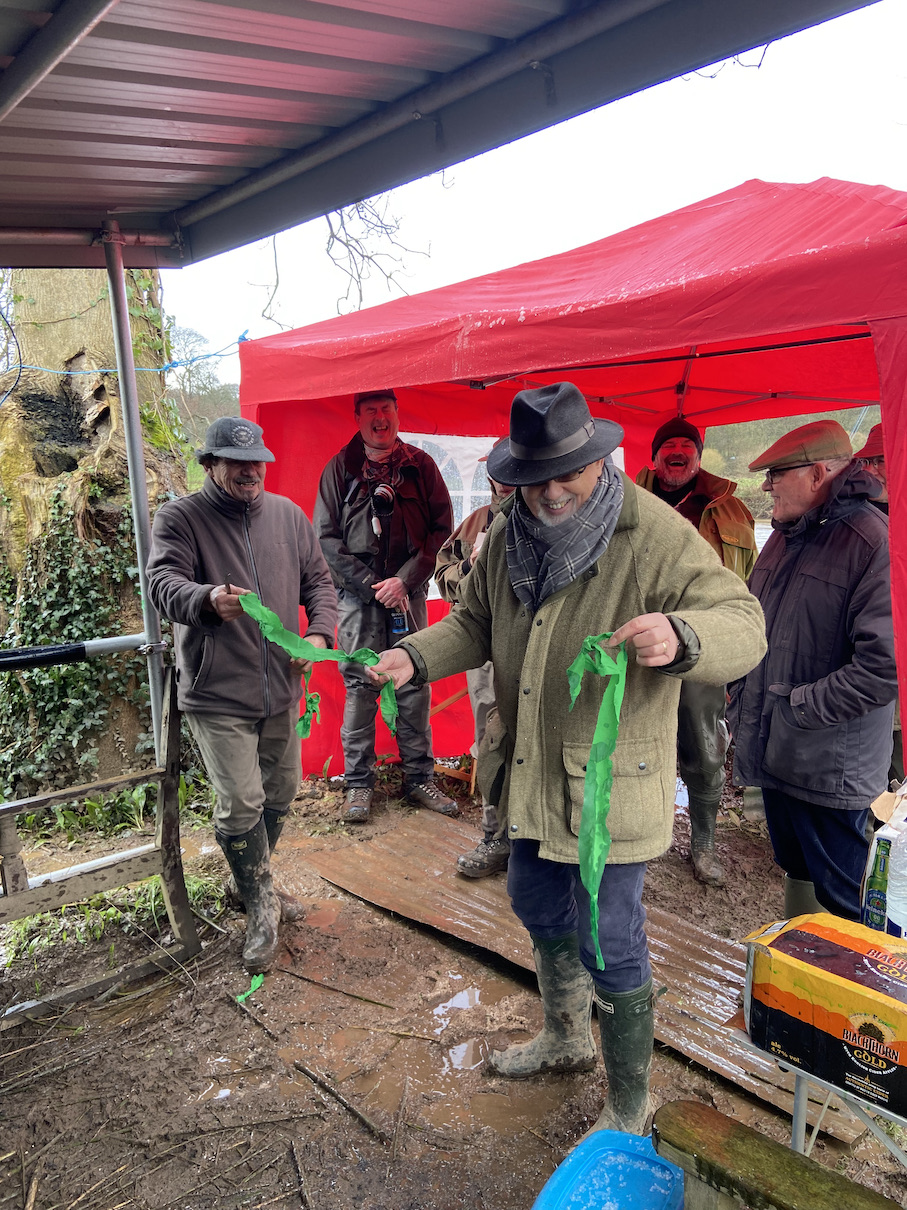
Dark clouds and a ferocious hail storm failed to dent the optimism of those gathered and I left with joy in my heart for a new season. The smell of wild garlic lifted from the ground a pleasing scent heralding the onset of spring and warmer days ahead.

When I wrote of the old club hut a decade or more ago I was saddened at its demise. Today the old hut and spirit of the angling brethren had risen like a phoenix bringing optimism for the future. It is my hope and fellow club members hope that the rivers problems will be solved and that a new generation of club anglers will continue to gather memories as the rivers eternal flow continues.
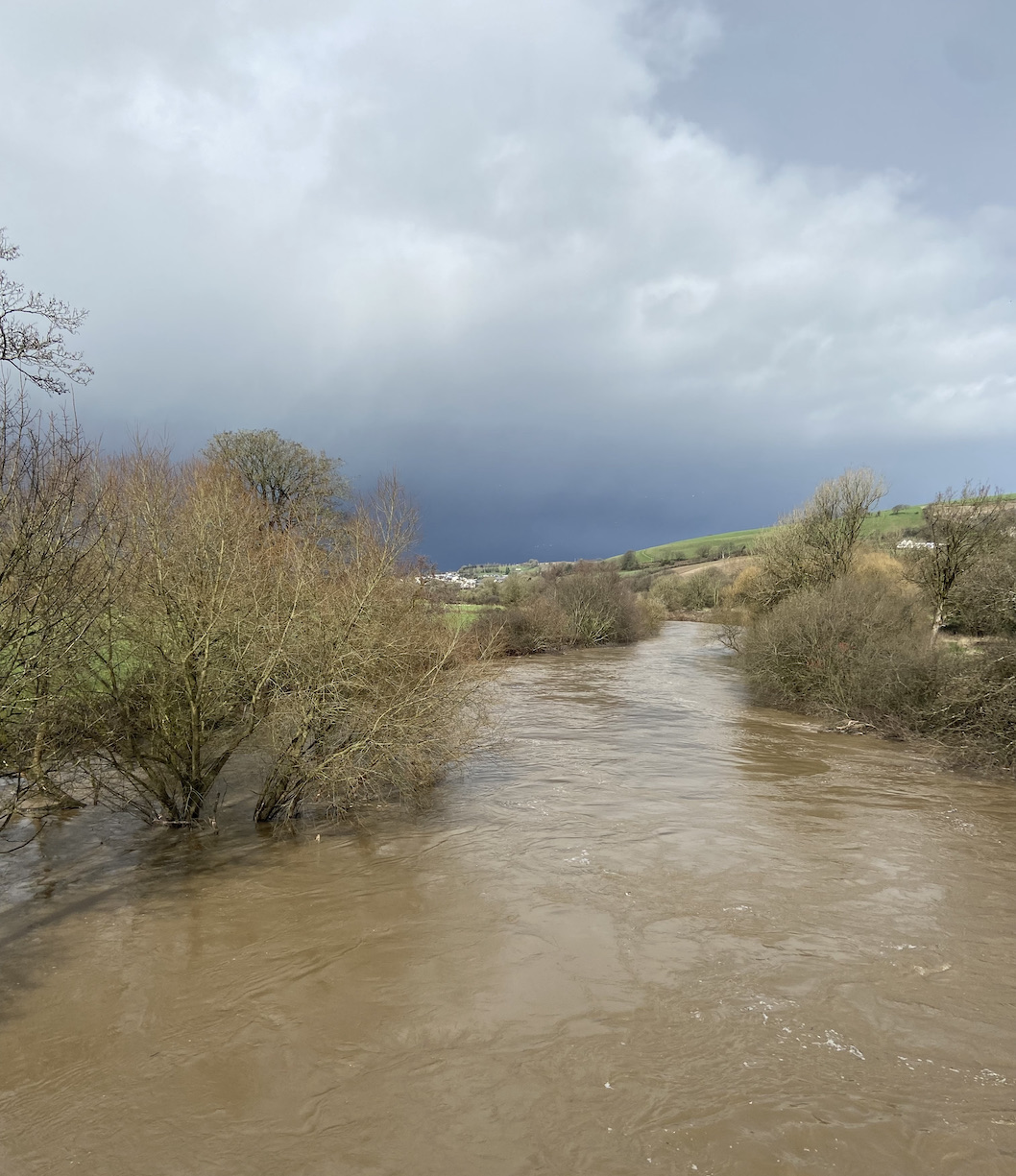
I have just finished reading a book about the Chalk Streams of Southern England. ‘The Lost World Of The Chalk Streams, by E. A. Barton tells of an enchanting riverside world between the wars. A selection of atmospheric black and white images capture a bygone age. There are extracts of prose that bring poignancy and inspiration as I write this and look back over fifty years beside the Taw.
The Test In August – “The season has turned and like the first grey hairs of middle life, signs of approaching age cannot be overlooked.”
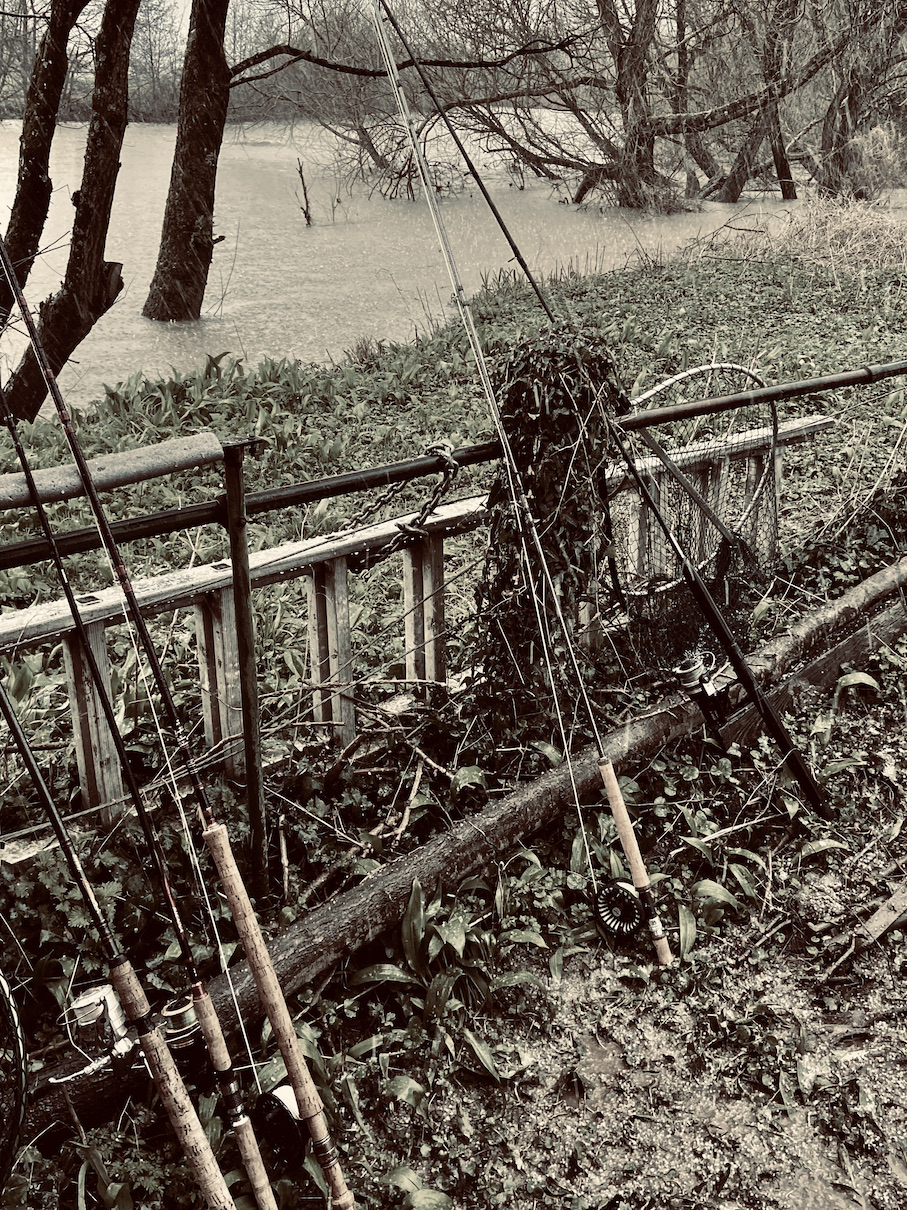
“The enjoyment derived from a day’s angling should never terminate with the day but should linger in the memory like a pleasant taste, to be reconstructed with but the smallest effort of will at times when there is little else to distract. Over the fire on winter evenings. When one’s book is finished, or with a friend in retrospective mood, one reverts back to those days spent together by open loch or quiet river. The habit of visualising accurately a picture of the surroundings of some specially interesting incident at the moment of its occurrence is one well worth cultivating. After a time it becomes so reflex and automatic that it is easy to recall vividly. Even to the smallest detail, the passage of some memorable event. Such a habit becomes a priceless possession, for by its aid can be conjured up, with photographic accuracy, a collection of moving pictures of everlasting delight. So that when the afternoons of life are beginning to draw in, and the wheel creaks at the cistern, that habit cultivated in youth becomes an ever delightful resource by which one lives again with little less than reality the golden experience of the past
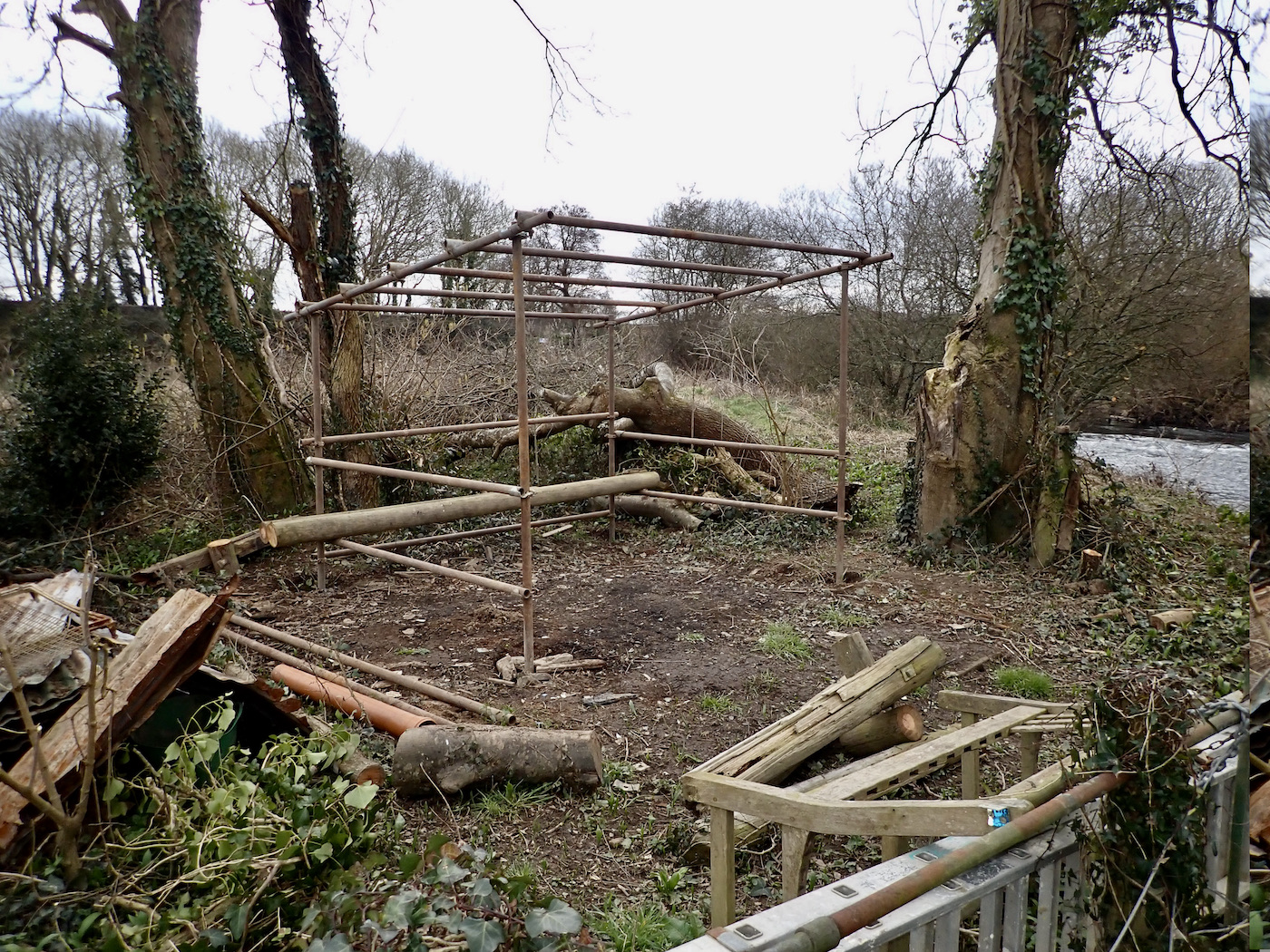
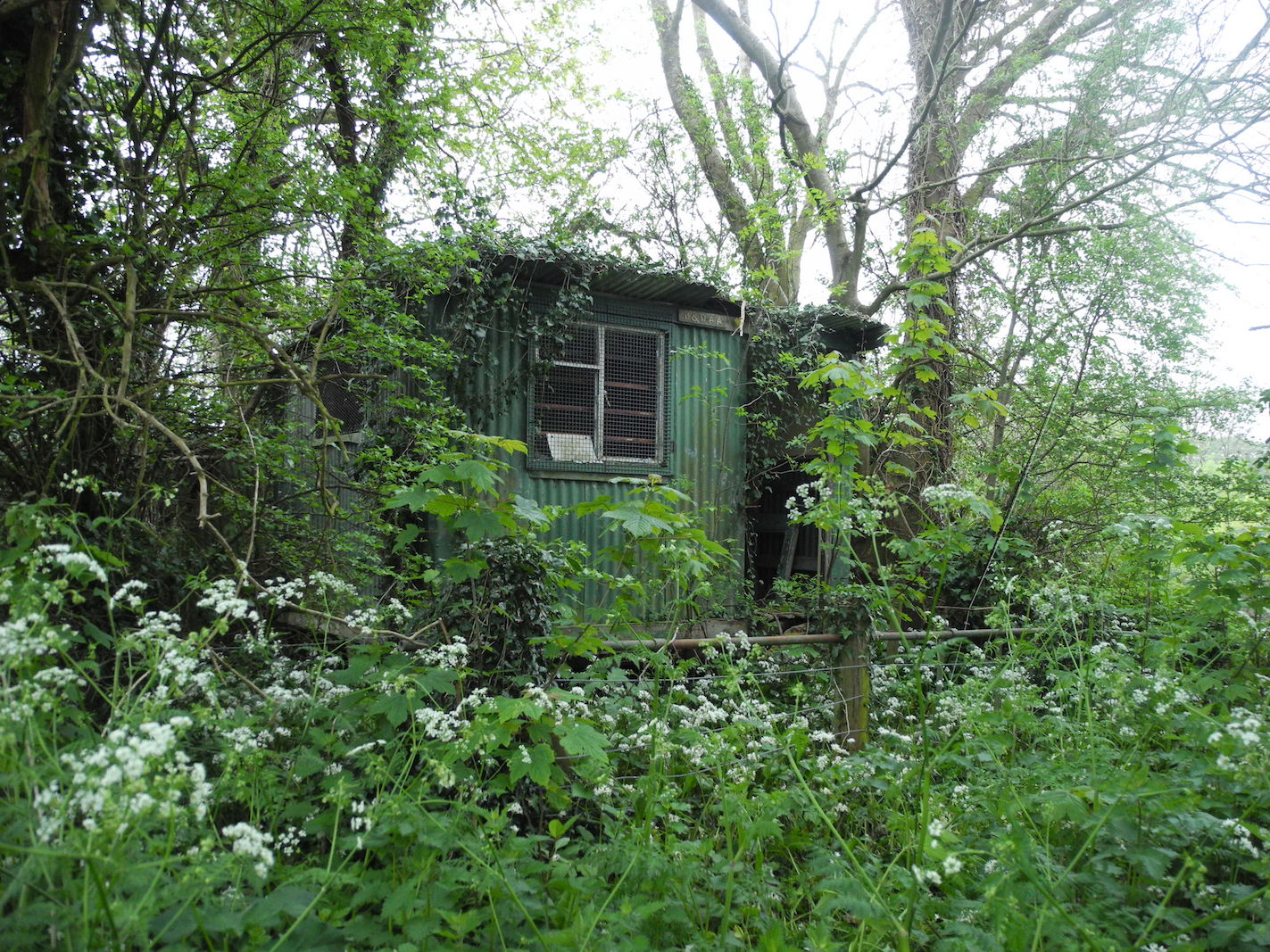
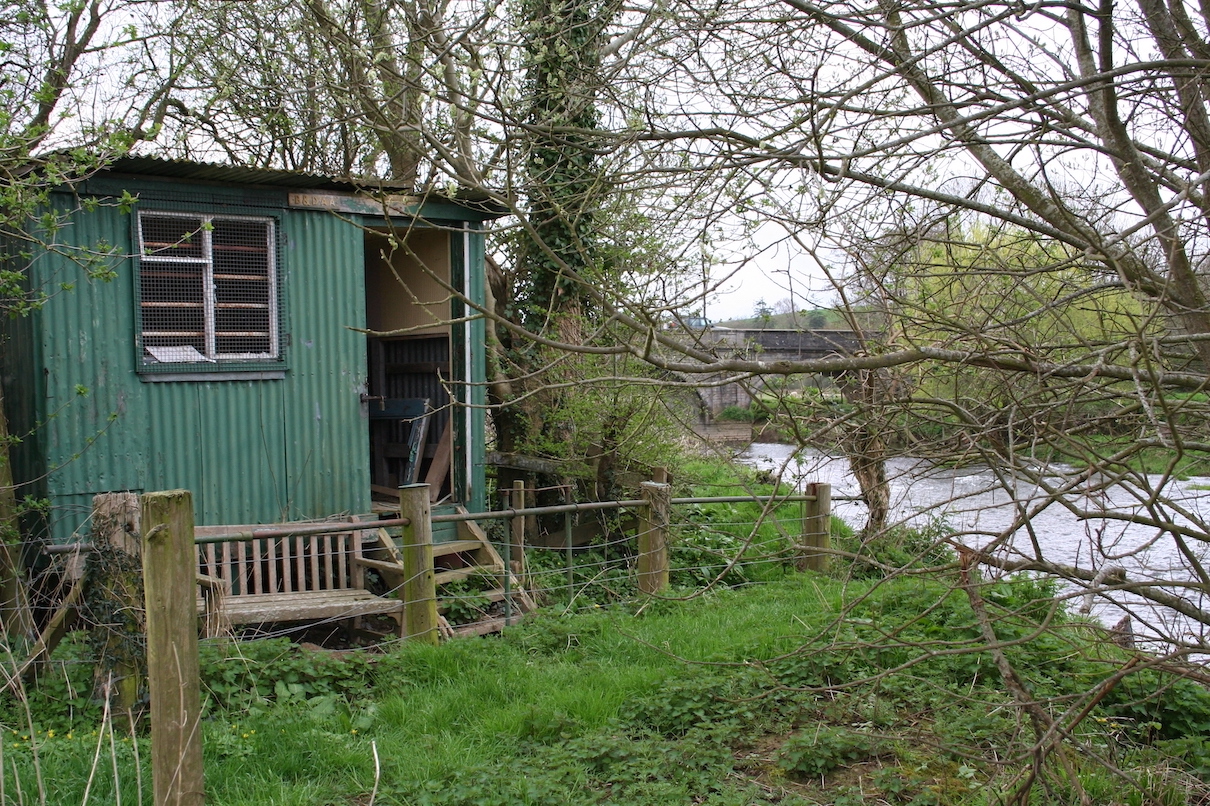
I stopped on the bridge as always to peer into the river below. The sun shone and the river took on that blue green translucence typical of springtime. A few martins and swallows swooped above the river seeking nourishment following their long flight from far off lands. After a brief survey of the pool I moved on and came to the old gate that leads to the river bank.
The gate hung partly unhinged, it’s fastening asp broken, a few bits of litter caught my eye discarded by some ignorant motorist. A problem that blights our countries hedgerows tarnishing our land with an urban feel, continuing down the steps I glanced at the old fishing sign, rusting and grimy, the clubs name still present above the words, “Private Fishing Club Members only”. The pathway beside the river had always been well trodden at this time of year (Early April) yet now it was partly grown over. Celandine flowers brightened the waterside meadow with their bright yellow hues. It felt good to be walking the river bank again after a long break but strange melancholy feelings drifted into my being. I glanced at the old corrugated fishing hut its door was open, someone was about I thought, tidying up or fishing somewhere down stream.
My club membership had long since lapsed and I was heading to fish the free water a hundred yards or more downstream. I had fished this section of river heavily twenty five years ago hoping for a silver spring salmon but had visited rarely over recent seasons. However a river is like a long lost friend familiarity returns quickly and certain things retain a core character. The constant flow of a river towards the sea has always given me an almost spiritual reassuring sense of stability. A feeling I had always treasured each spring as I trod the banks rod in hand hopeful of one of anglings greatest prizes, a fresh run silver salmon. The grass flourishing, buds bursting into life on riverside trees and spring birds filling the air with song, migrants returned from a long cold winter, a sign of the coming warmth of summer.
I had very little time today just a grabbed moment from life’s busy schedule no time to fish methodically, just a few random casts into favourite lies. I remember long ago seeking a salmon a prize that seemed unattainable. Eventually after many days by the river I had tempted a salmon, what had seemed so difficult I realised was really quite easy. You just had to be in the right place at the right time with a little good fortune. Salmon are a perplexing fish, totally ignoring all offerings one minute then suddenly erupting from the water to seize your bait, lure or fly with an unbelievable determination. After catching that first salmon an angler will forever be able to cast in hope for he believes in the impossible. This faith remains forever fuelling the desire for cast after cast.
I climbed down the river bank entering the water above a sweeping bend in the river. An old tree stood, its roots exposed from constant attack annual winter floods. Beneath the tree was a favourite lie that had held many salmon and sea trout over the years. I waded out into the river, relishing the feel as the cool water pushed against my legs. I extended my fly line above the water and dropped a bright orange Ally’s Shrimp fly near the far bank. I allowed the fly to swing tantalizingly across the flow, took a step downstream and repeated the process. Many times in the past I had seen salmon and sea trout leap from the water at this spot. I hoped to see one now, I really didn’t need to catch to glimpse the prize would suffice.
Strange really, since the introduction of catch and release in the early season I have lost much of my determination to seek salmon. I always used to relish taking that first fresh Springer home to enjoy with new potatoes and lashings of butter. I regularly fish for a wide range of species and return ninety percent of the fish I catch. I have no problem returning a coloured salmon in the autumn but I somehow struggle with returning a bar of silver sea liced salmon. I often think of Hugh Falkus’s comments on catch and release and his views that it was somehow wrong. Somehow I feel he had a point there is something undignified in toying with a fish so magnificent as the Atlantic salmon. Perhaps I just don’t like being told I have to return the fish, I remember catching a well mended Kelt several years ago. It had inhaled the Mepps spinner to the back of its throat and was bleeding profusely. I gently returned it to the river, to my horror it keeled over and drifted away to die. How would I feel if this happened to a prime fresh run fish?
This leads me on to another restriction that has been imposed to preserve stocks. In the early season I and most other anglers used the spinner to fish for salmon. A Mepps spinner or Devon Minnow was cast into the cold waters and retrieved slowly its throbbing reverberated through the line to the rod giving a physical transmission between angler and river. At any moment there was the anticipation of the electrifying take as a bar of silver attacked the lure. I fully support the need to preserve salmon stocks and if that impinges on my pleasure then so be it I guess, I just wonder about the long term effect of these restrictions on our freedom?
I continued to fish on down stream, ice cold water started to seep into my chest waders. I realised that my repairs to the holes had failed and a new pair of waders would be needed before my next trip.
It was time to leave I had to collect my young son form his cricket coaching. I climbed from the river my boots squelching as I retraced my way along the riverside path. I came again to the old fishermen’s hut, the door was still open, inquisitive I strolled over and peered inside. The door had been broken from its hinges, the old leather seat was torn, old mugs stood in an old wooden cabinet where mice had made their home the old hut was damp and derelict. A feeling of sadness came upon me. I immediately understood the melancholy feeling I earlier sensed. Twenty odd years ago I had spent many hours beside this river and talked with the club anglers of the day. They were generally anglers in their fifties or sixties who had fished the river for many years. They generally had a tale to tell of the good old days, of encounters with huge spring salmon, some won some lost. They had intimate knowledge of the river and a deep respect and love for the salmon. Each year working parties would trim troublesome branches and carry out repairs to gates and stiles. The fisherman’s hut was a meeting place where tales were swapped over cups of hot tea. Fishing magazines sat on the table to provide inspiration during break in fishing or tending to the river bank. There was always a rod leaning against the old rails that segregated the front of the hut from the bank side. A bench dedicated to an angler invited one to, “rest here and find pleasure”.
It dawned upon me that a generation of anglers had passed away. Few anglers now trod these banks in search of spring salmon. Upriver on prime beats people still pay large sums to fish but here on the club and free water few bother to cast a line. Perhaps restrictions have taken away the motivation for these anglers to fish or perhaps people no longer have the patience to chase dreams. I realise that back then we seemed to have time to talk, time to fish, time to dream.
The faces of a host of anglers fill my minds eye as I walk away from the river and the derelict old fisherman’s’ hut. I realise that whilst the river flows relentlessly on we anglers are just passing spirits. The comfort of the rivers immortality is temporarily shadowed by the realisation of our own fleeting visit to its banks.
As I walk across the bridge I again pause as always for one last look at the river. A car races past, a train thunders along the nearby track I re-enter the modern world and walk back to the car. On getting home I think back to the old fishing hut and vow to jot down my thoughts before they get lost and drift away like the old anglers who once fished the river.
